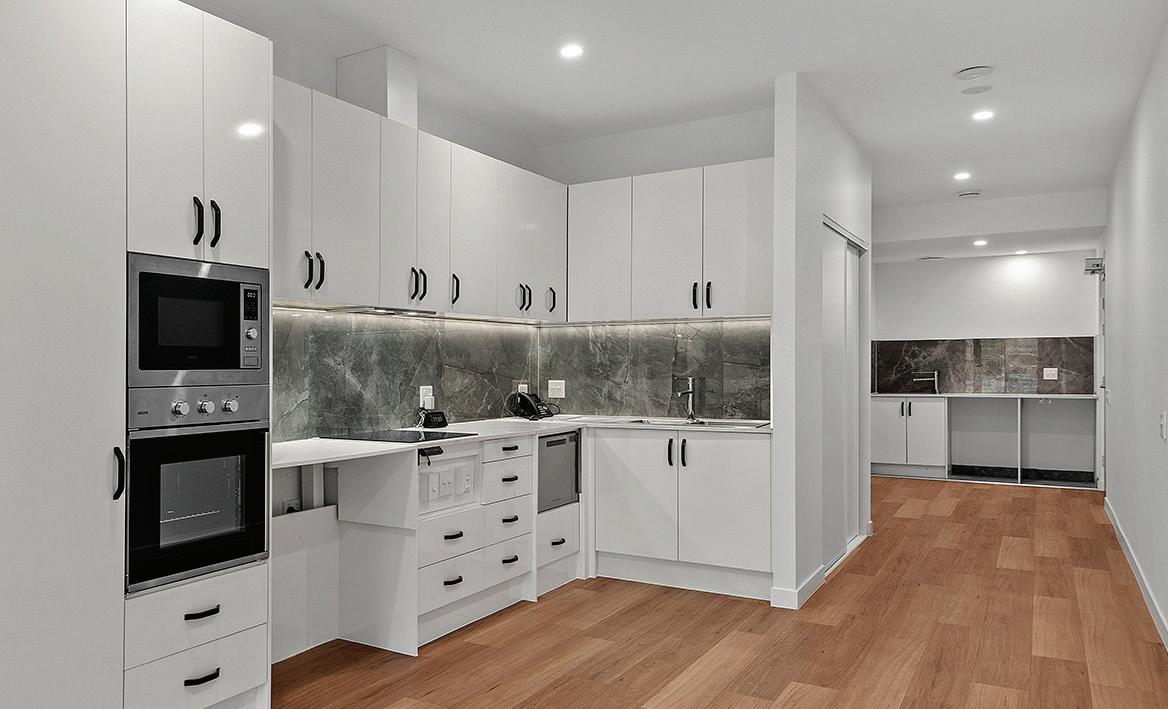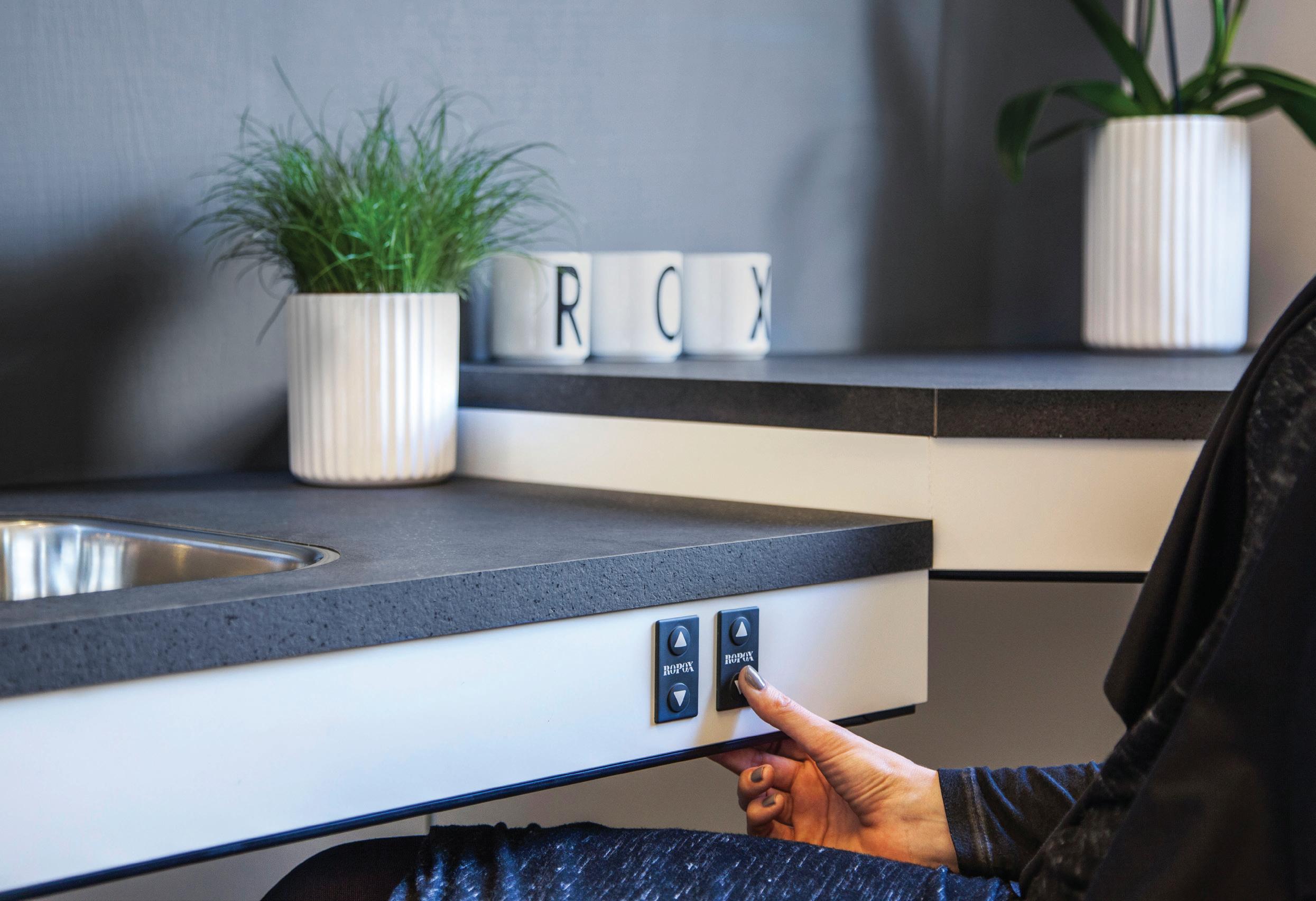Specialist Disability Accommodation (SDA) Solutions







Bunnings has a long history of supplying the building and construction industry in Australia and New Zealand, and we’ve evolved to support businesses too. We’re much more than a supplier, we’re your partner. At Bunnings Trade, we have the services and solutions to help you get the job done and grow your business.
1886
Arthur and Robert Bunning arrive in WA. Bunnings Bros Pty Ltd is founded. Soon after they purchase their first sawmill.
We work with a variety of organisations and businesses across a range of sectors and industries:
Accommodation, Tourism and Food Services
Administration and Safety
Agriculture, Forestry and Fishing
Child Care and Social Assistance
Education and Training
Electricity, Gas, Water and Waste
Export
Finance and Insurance Services
Franchising
Health and Residential Care Services
Manufacturing
Mining
Personal and Other Services
Professional, Computer and Scientific Services
Rental Hiring and Real Estate
Retail and Wholesale Trade
Sports Recreation, Arts and Media Services
Transport, Postal and Warehousing
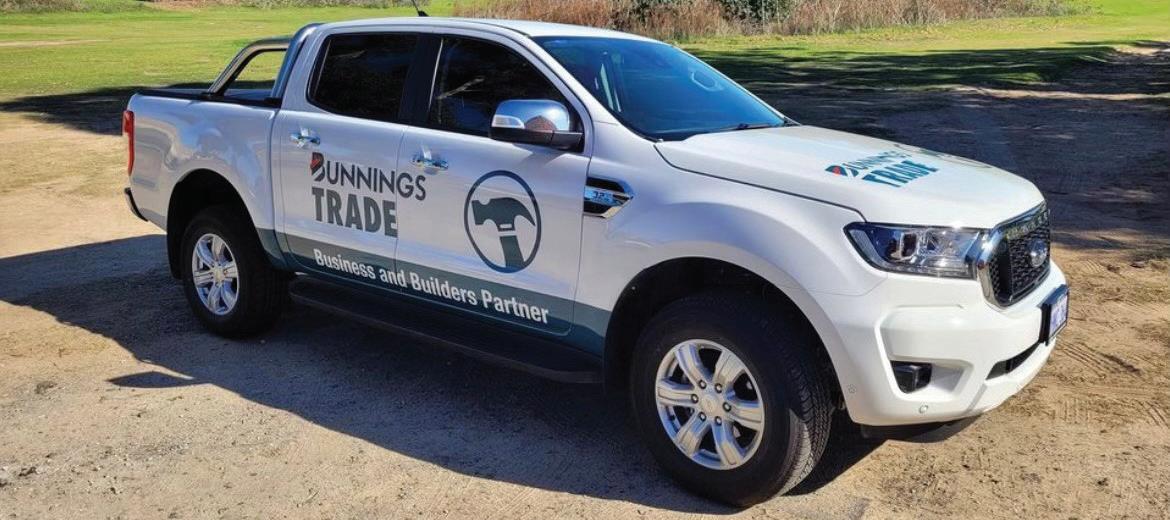
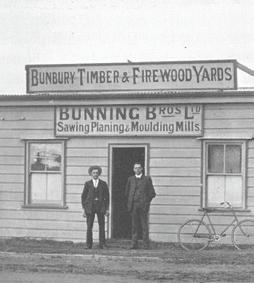
Bunnings expand in the WA market, adding building supplies to their timber business; became a public company and the leading supplier of WA hard woods to the construction industry.
1993
Bunnings purchase McEwans Ltd in Victoria and South Australia enabling expansion of operations of the east coast.
1994
Bunnings open their first Warehouse in the Melbourne market and Wesfarmers go to 100% ownership.

Frame and Truss launched providing superior service and advice, including quoting, estimating and detailing for projects both large and small.
Trade Centres launched for commercial sales and deliveries.
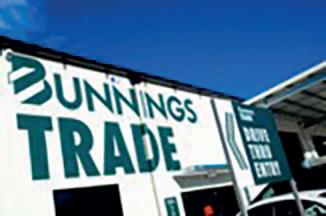
Bunnings Trade introduces PowerPass program.

Bunnings Trade introduces the PowerPass app.

Building Solution Studios (BSS) relaunched for commercial customers, architects and designers in Port Melbourne, Castle Hill and Cannon Hill.
Bunnings Trade continues to deliver services and solutions that help our customers business’ grow.
Bunnings has over 130 years’ experience in the building industry and is now supplying a range of building and hardware solutions specifically for Specialist Disability Accommodation (SDA) builds.
We have partnered with credible trusted manufacturers and suppliers to collate a range of SDA-suitable products that have been independently verified as compliant to the relevant Australian Standards, whilst also providing consumers with aesthetically pleasing options.
Our range includes products that have been deemed suitable for use across the four Specialist Disability Accommodation design requirements:
© Bunnings Group Limited August 2024
The information contained in this publication is intended for qualified and experienced building professionals, is of a general nature, and draws information from the NDIS Specialist Disability Accommodation Design Standard (Edition 1.1 Issue Date 25 October 2019) as a guide only. See below for details. It does not take into account individual circumstances, objectives or applicable requirements at law or otherwise. You should not act on the basis of or rely on this information without checking that the information is still current, satisfying yourself the solutions and products proposed meet your or your client’s specific needs and where applicable, obtaining advice from a suitably qualified professional. Any claims of product compliance, including with respect to the applicable Australian Standards or suitability in terms of meeting the NDIS Specialist Disability Accommodation Design Standard have been provided by our product suppliers and have not been independently verified by Bunnings. Installation is your responsibility unless Bunnings agrees to supply and manage installation for applicable products, such as joinery and flooring. Photos used in this publication are for illustrative purposes only and products that are available for sale may vary. Some products listed may not be available for immediate purchase.
The NDIS Specialist Disability Accommodation Design Standard (Edition 1.1 Issue Date 25 October 2019) licensed by the National Disability Insurance Agency (NDIA) under a Creative Commons Attribution 4.0 International Licence CC BY 4.0 has been used in the creation of this publication. The information in this publication is considered accurate at the time of publishing.
Unless otherwise separately undertaken by the NDIA, to the extent possible, the NDIA offers the Licensed Material as-is and as-available, and makes no representations or warranties of any kind concerning the Licensed Material, whether expressed, implied, statutory, or other. This includes, without limitation, warranties of title, merchantability, fitness for a particular purpose, noninfringement, absence of latent or other defects, accuracy, or the presence of errors, whether or not known or discoverable. Where disclaimers of warranties are not allowed in full or in part, this disclaimer may not apply to you.
To the extent possible, in no event will the NDIA be liable to you on any legal theory (including, without limitation, negligence) or otherwise for any direct, special, indirect, incidental, consequential, punitive, exemplary, or other losses, costs, expenses, or damages arising out of the Public Licence or use of the Licensed Material, even if the Licensor has been advised of the possibility of such losses, costs, expenses, or damages. Where a limitation of liability is not allowed in full or in part, this limitation may not apply to you.

At Bunnings, we’re committed to ensuring the products we sell, come from legal and sustainable operations, with good working conditions and fair treatment of people. As such, we continue to pursue sustainability by striving to make them socially responsible, environmentally aware and economically viable.
We are also committed to helping customers live more sustainably, and we are proud of the role we play in supporting local communities to make a positive difference. We recognise that our business plays an important role in reducing carbon emissions and addressing climate change. We have a comprehensive roadmap in place to reduce our energy consumption and to transition towards using more renewable energy sources.
Bunnings is committed to participating in the communities in which we operate by contributing to local, regional and national causes, charities and organisations throughout Australia and New Zealand. We provide ongoing assistance to a wide range of local community groups including schools, sporting clubs and service clubs.
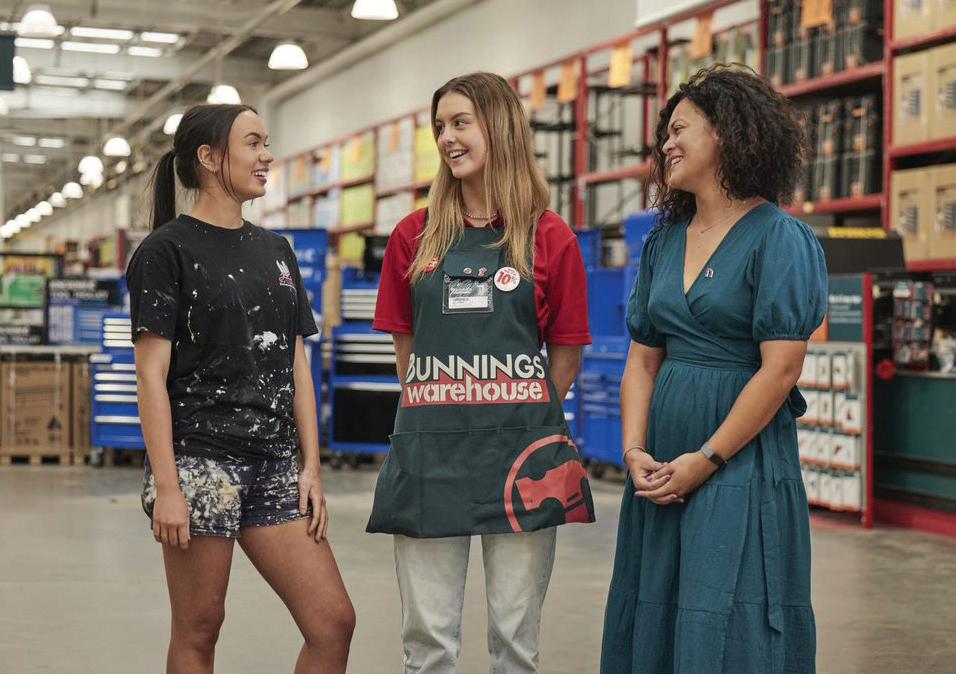










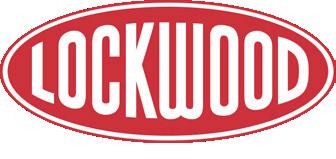
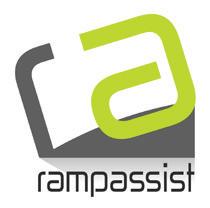

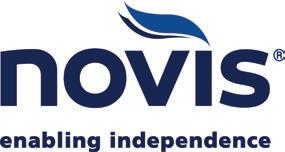



Specialist Disability Accommodation (SDA) design category of Improved Liveability refers to housing that has been specifically designed to assist people with sensory, intellectual, or cognitive impairments.
These dwellings are built to enhance physical access and aim to provide a safer and more comfortable environment for residents.
The design standards for Improved Liveability includes features such as clear and unobstructed pathways, good lighting for visibility, and the use of contrasting colours for better perception. To assist with navigation, these homes may feature design elements such as, luminance contrasts and tactile materials on walls, and door frames in internal and external areas.
Additionally, these homes may include assistive technology, and equipment that hope to support the independence and daily living activities of residents.
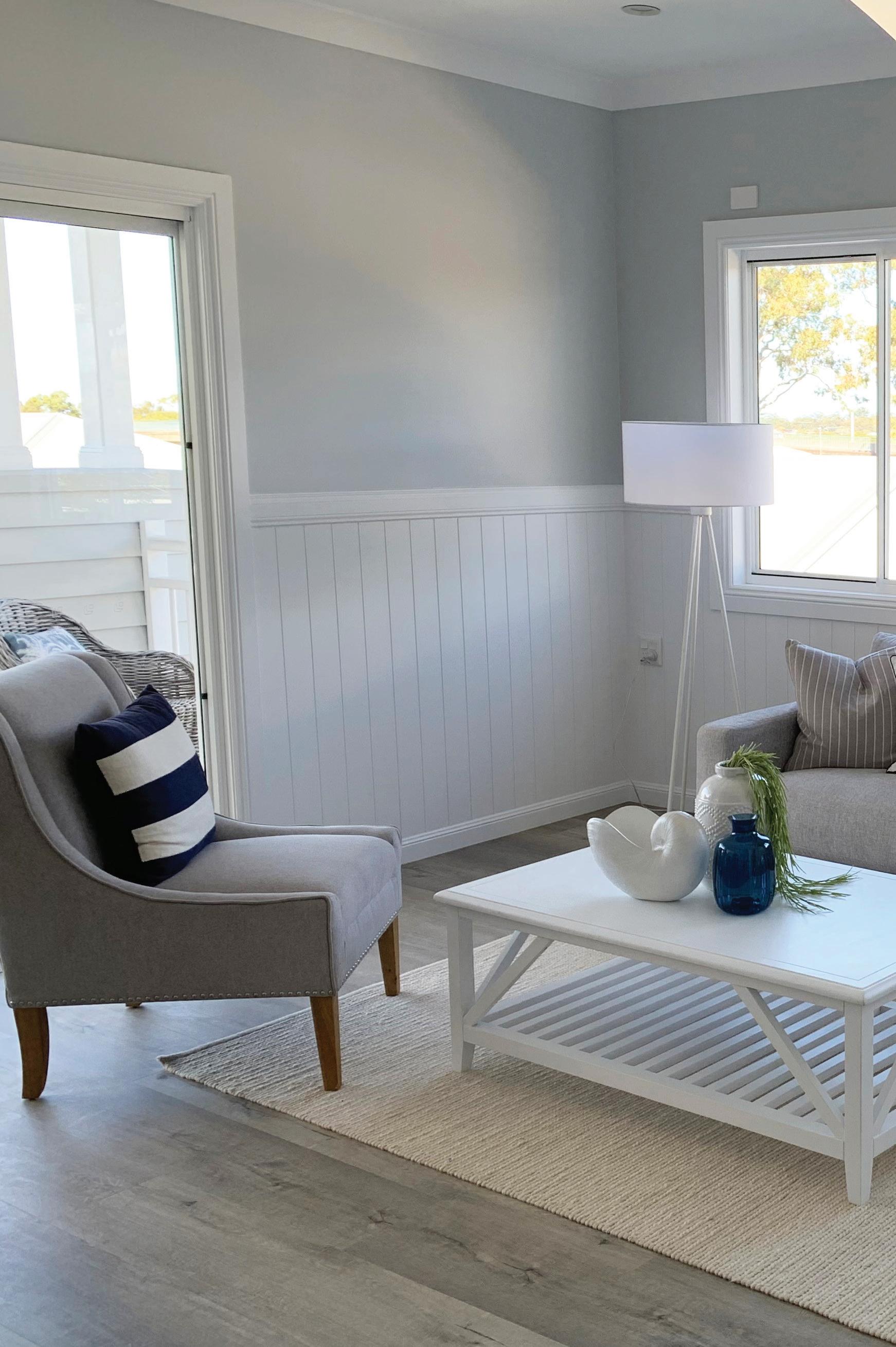
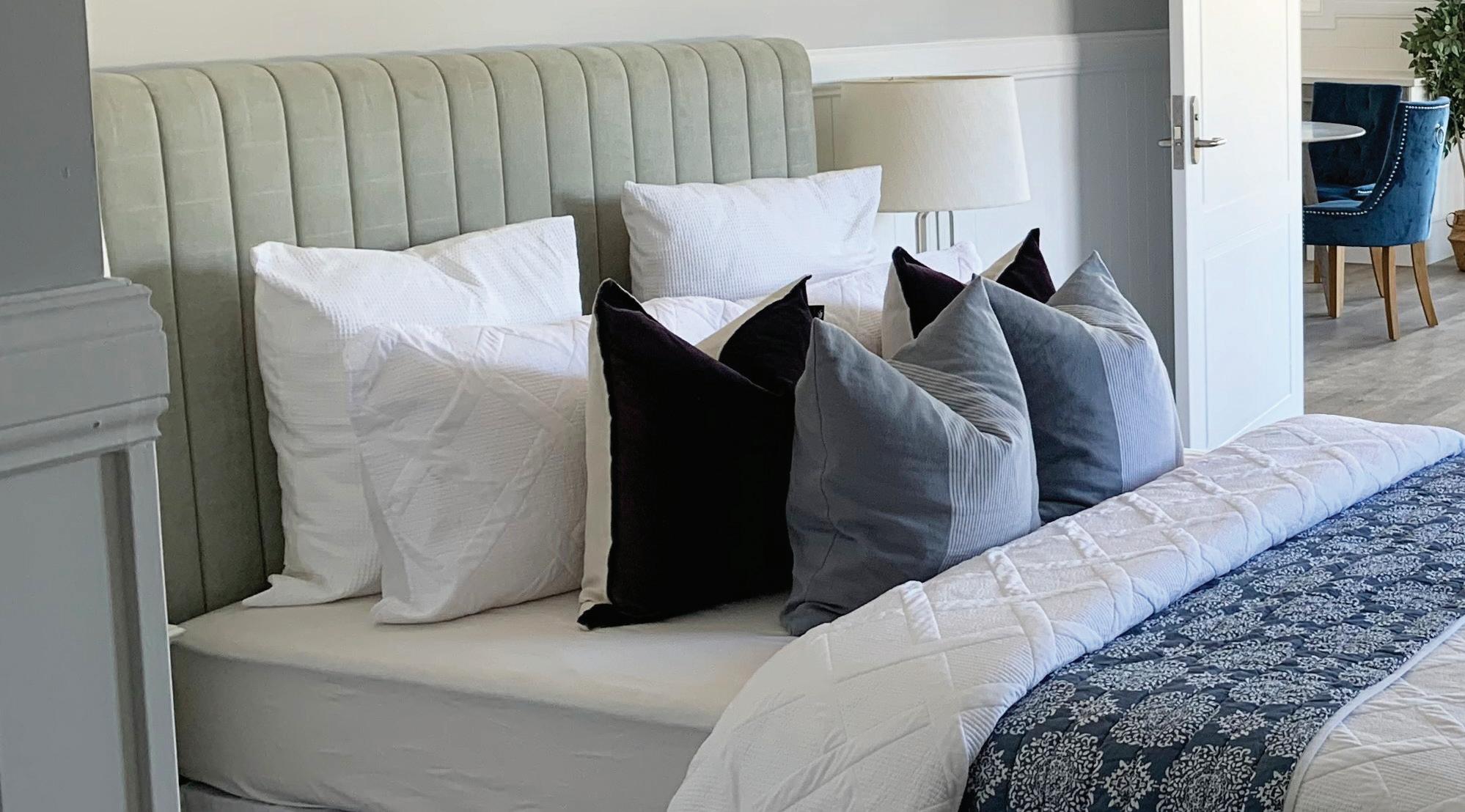

The goal of Improved Liveability SDA is to create living spaces that not only meets the physical needs of its occupants, but also promotes their well-being by supporting an autonomous lifestyle.
When building to the SDA Improved Liveability guidelines, additional consideration will need to be given to the selection of many materials and products, including:
• Flooring and wall coverings
• Lighting and electrical switches
• Door Furniture and locks
• Smart Home accessories and automation
• Front-of-wall plumbing, tapware and bathroom accessories
• Joinery and benchtops
• Appliances
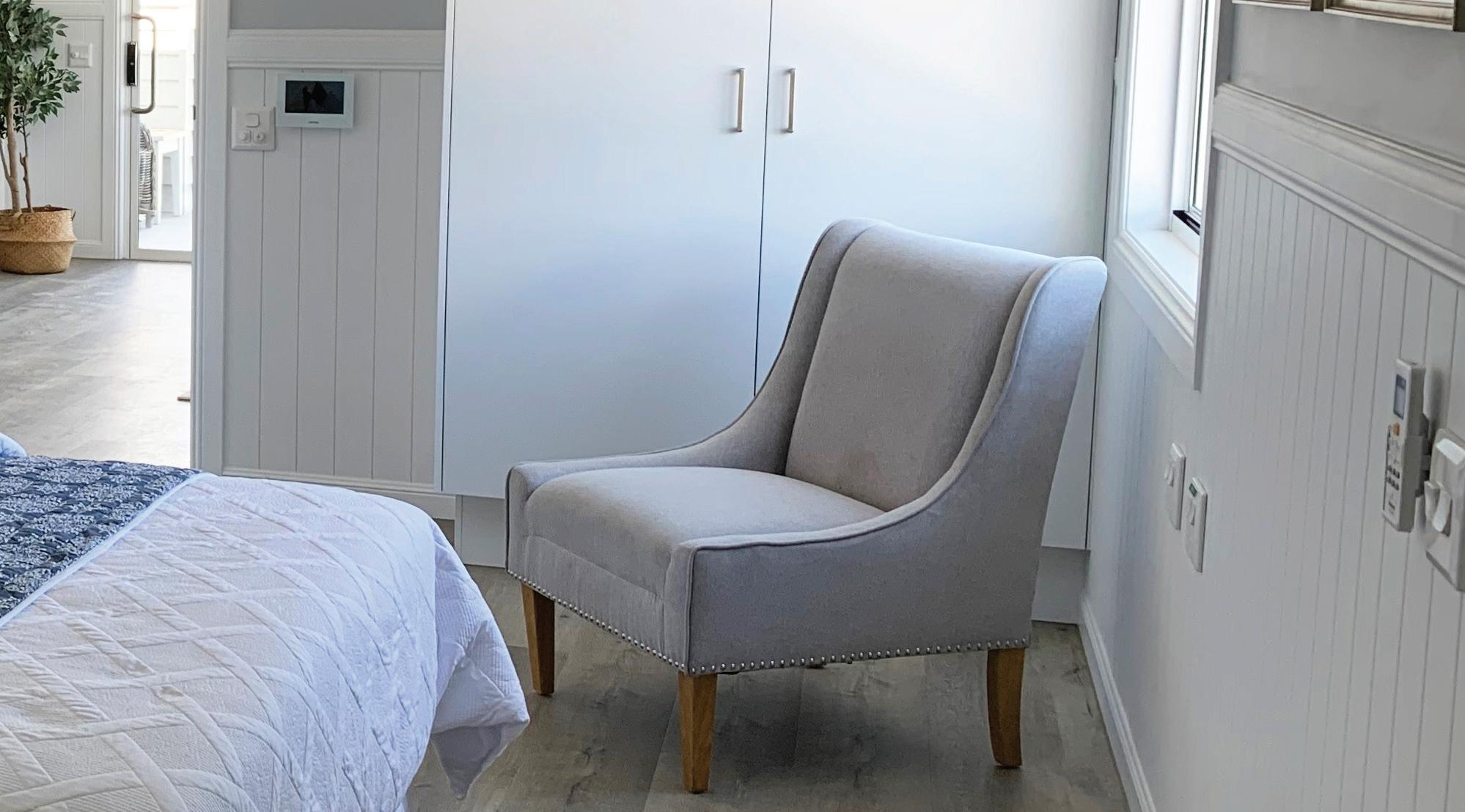
Specialist Disability Accommodation (SDA) with the design category of Robust is specifically designed to cater for people who require an environment resilient to high impact behaviours, and aspires to provide a safe space for both the residents and community.
These accommodations are constructed using resilient, but inconspicuous materials that aim to reduce the risk of injury, minimise neighbourhood disturbances, and cope with heavy use. They may also include features such as secure windows, doors, walls and soundproofing. The design also takes into consideration the need for reduced stimuli, which may be beneficial for people who have behavioural concerns.
Robust SDA homes are not only durable, but they also incorporate elements that are easy to clean and maintain, ensuring longevity and a consistent living environment. The goal of Robust SDA is to provide a living space that supports independence while ensuring the safety and well-being of its occupants.
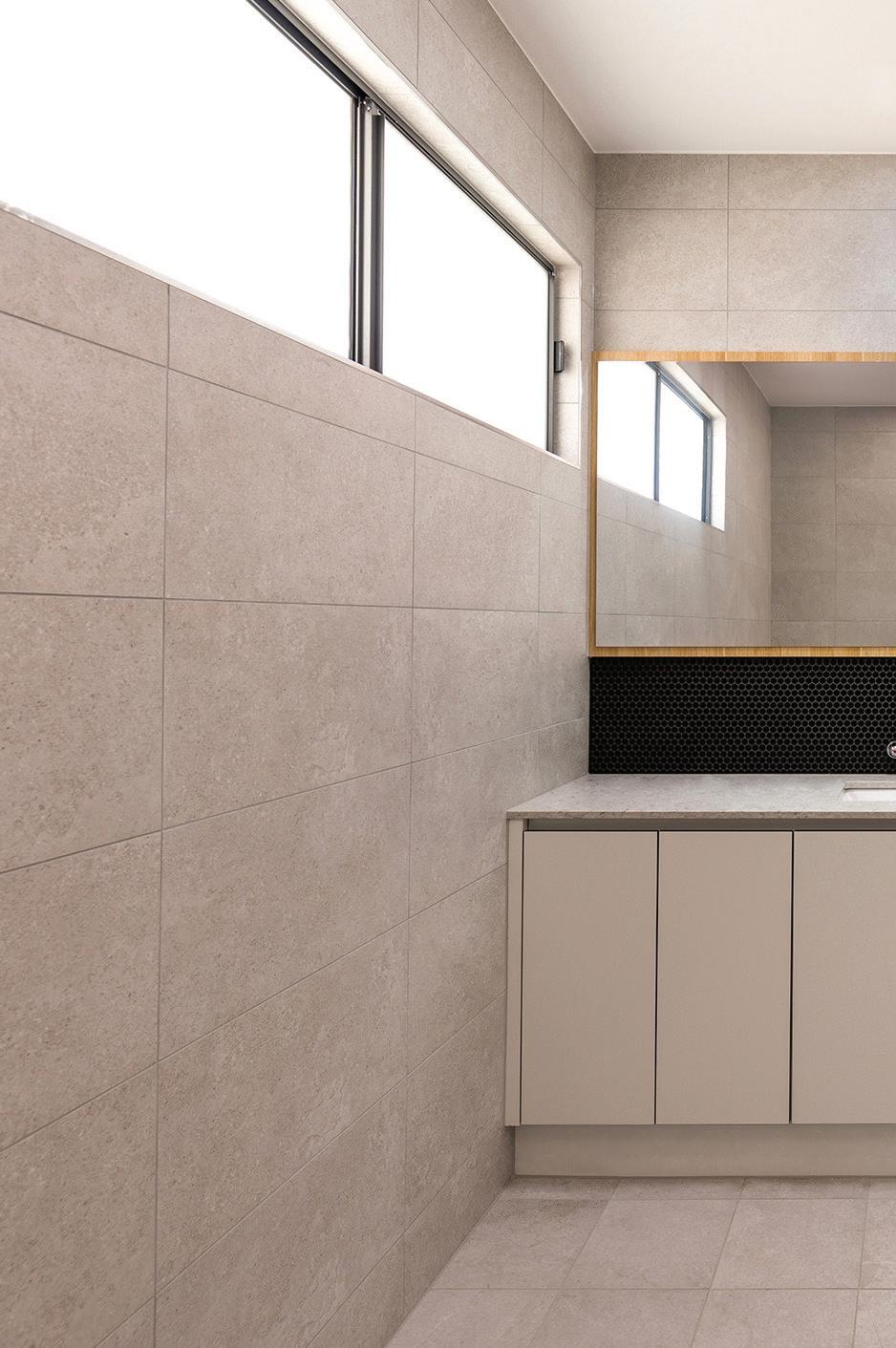
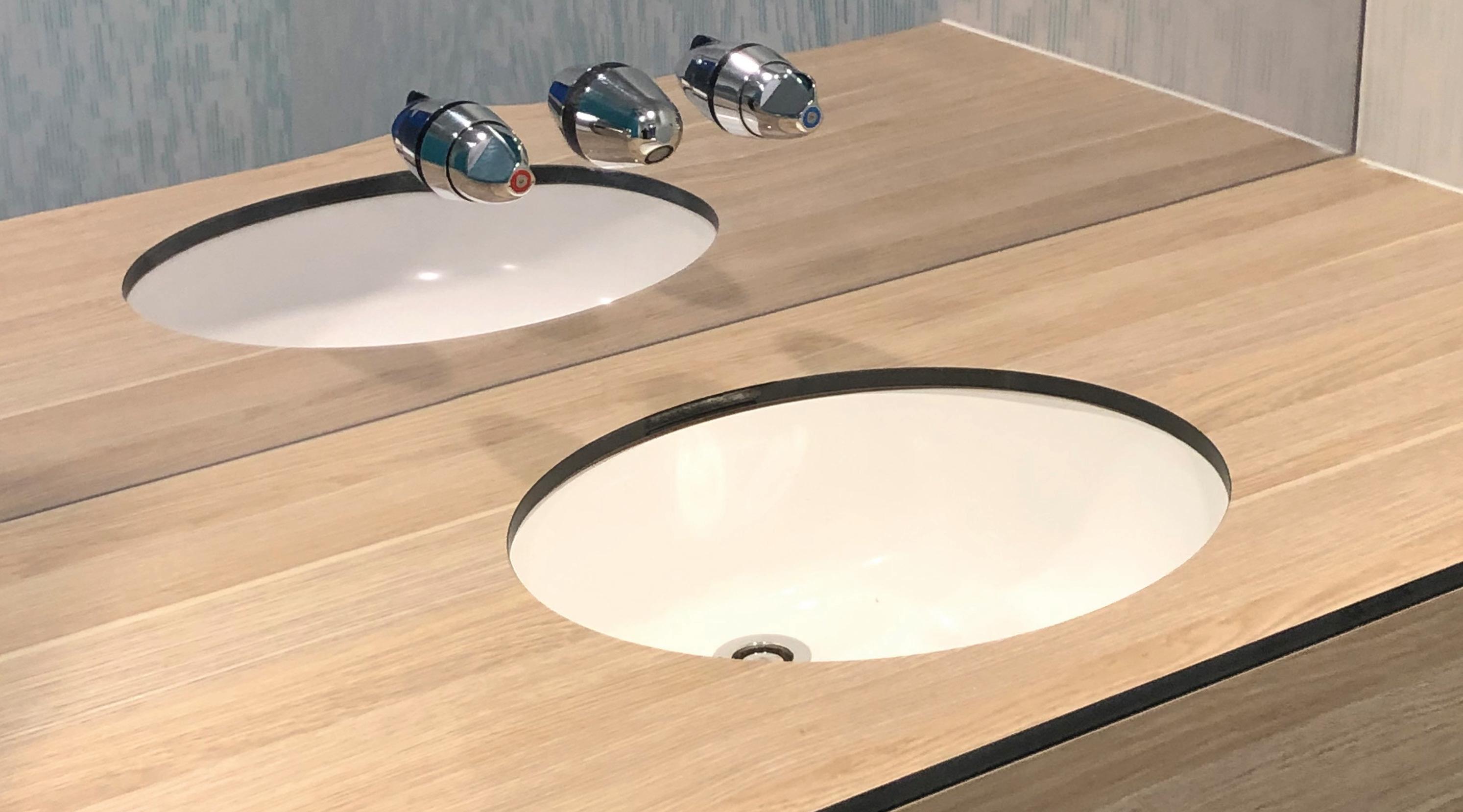
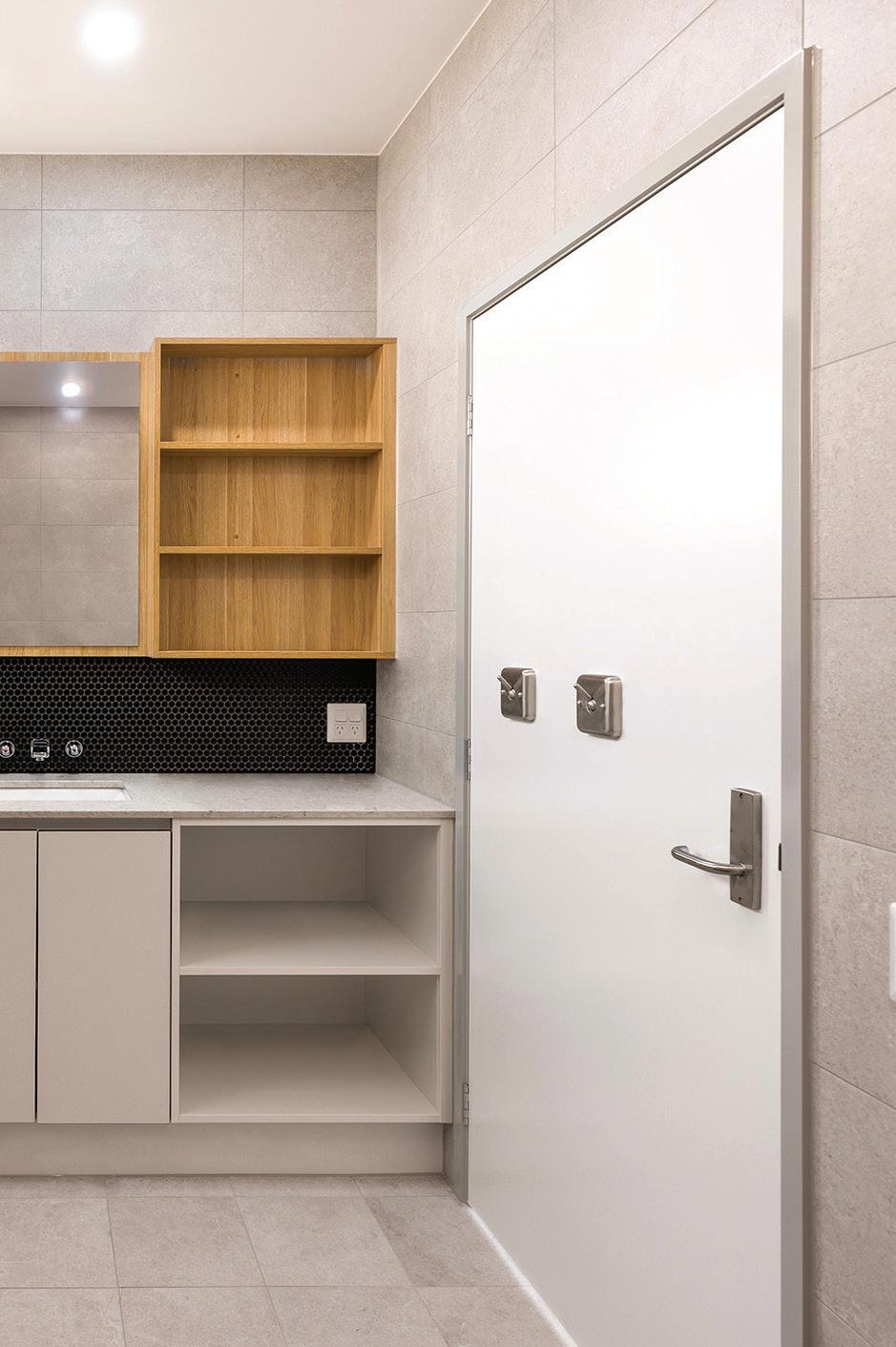
It’s a thoughtful convergence of durability, functionality, and design, intended to create a harmonious environment that respects the needs of individuals, ultimately contributing to their quality of life and community integration.
When building to the SDA Robust standards, additional consideration will need to be given to the selection of many materials and products, including:
• Flooring and wall coverings
• Lighting and soundproofing
• Door and window furniture and locks
• Front-of-wall plumbing, tapware and bathroom accessories
• Anti-Ligature and vandal-proof fixtures and fittings
• Safety glass and window coverings
• Joinery and benchtops
• Appliances
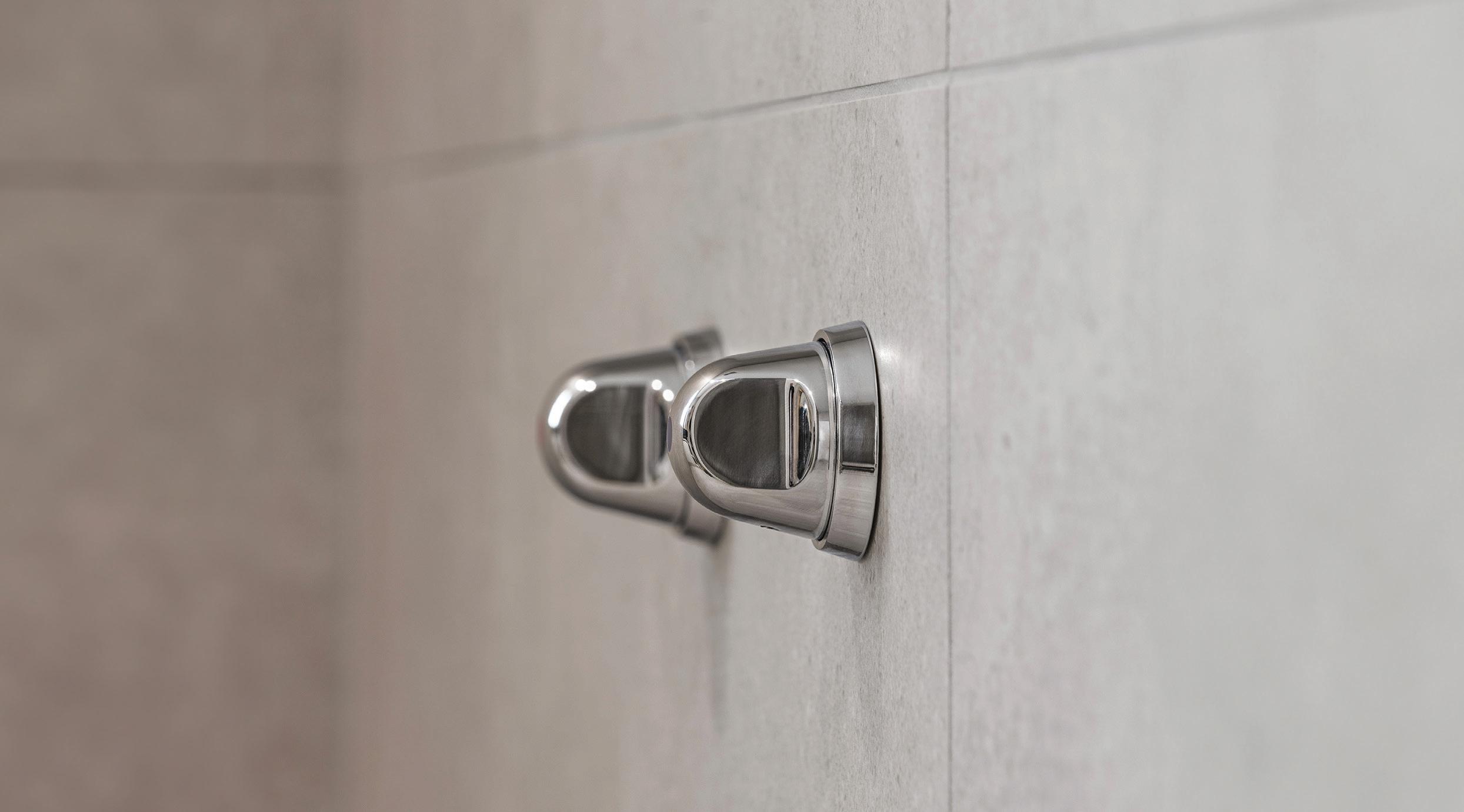
Specialist Disability Accommodation (SDA) with the design category of Fully Accessible is designed for individuals with significant physical impairments, or very high support needs. This accommodation type is tailored for people with different physical abilities, such as those who may use a wheelchair.
Fully Accessible dwellings include features that focus on ease of navigation and use, such as wide doorways, ramps instead of stairs, handrails, and accessible bathroom facilities. Additionally, they may be equipped with features that support the physical needs of the occupants, such as adjustable kitchen benches, emergency call systems, and spaces that allow for the use of assistive devices like hoists.
The goal of SDA built to Fully Accessible standards, is to create an environment that aims to enhance the life of its residents through comfortable, safe and empowered living.
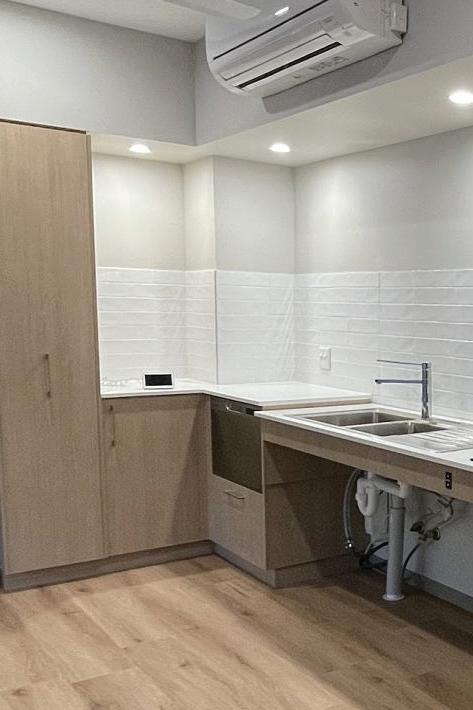
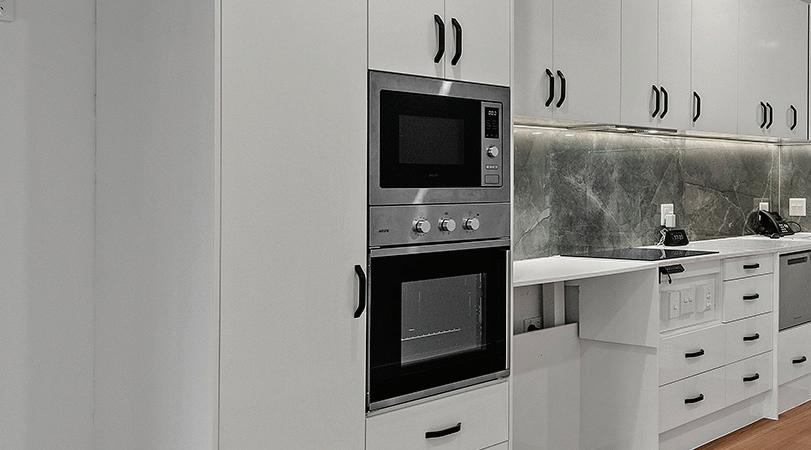
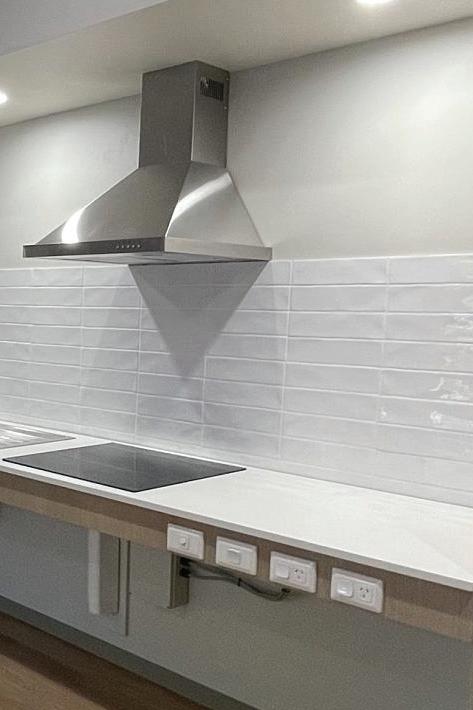
When building to the SDA Fully Accessible standards, additional consideration will need to be given to the selection of many materials and products, including:
• Wall coverings
• Entry ways, doors and door furniture
• Front-of-wall plumbing and tapware
• Electrical and light switches
• Adjustable joinery and benchtops
• Appliances
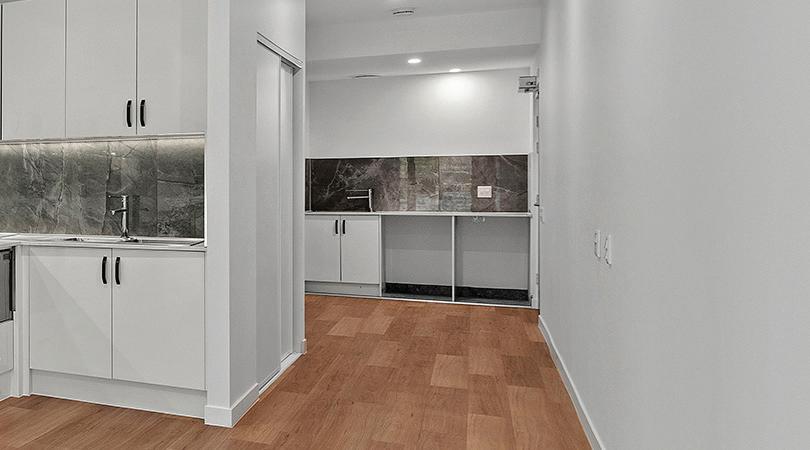
Specialist Disability Accommodation (SDA) with the design category of High Physical Support is designed for individuals with significant physical impairments who require substantial support in their daily lives. These accommodations are designed to empower people who require support to complete one or more self-care or self-management activities.
High Physical Support housing incorporates the features of fully accessible housing, with additional specialised design features to support a higher level of physical access.
This type of accommodation is tailored to focus on independence and safety, featuring structural provisions like wider doorways, ramps, and custom bathroom fittings to accommodate wheelchairs. Additionally, these homes often include assistive technology such as ceiling hoists, emergency power supply, and environmental control systems that may be operated by the resident.
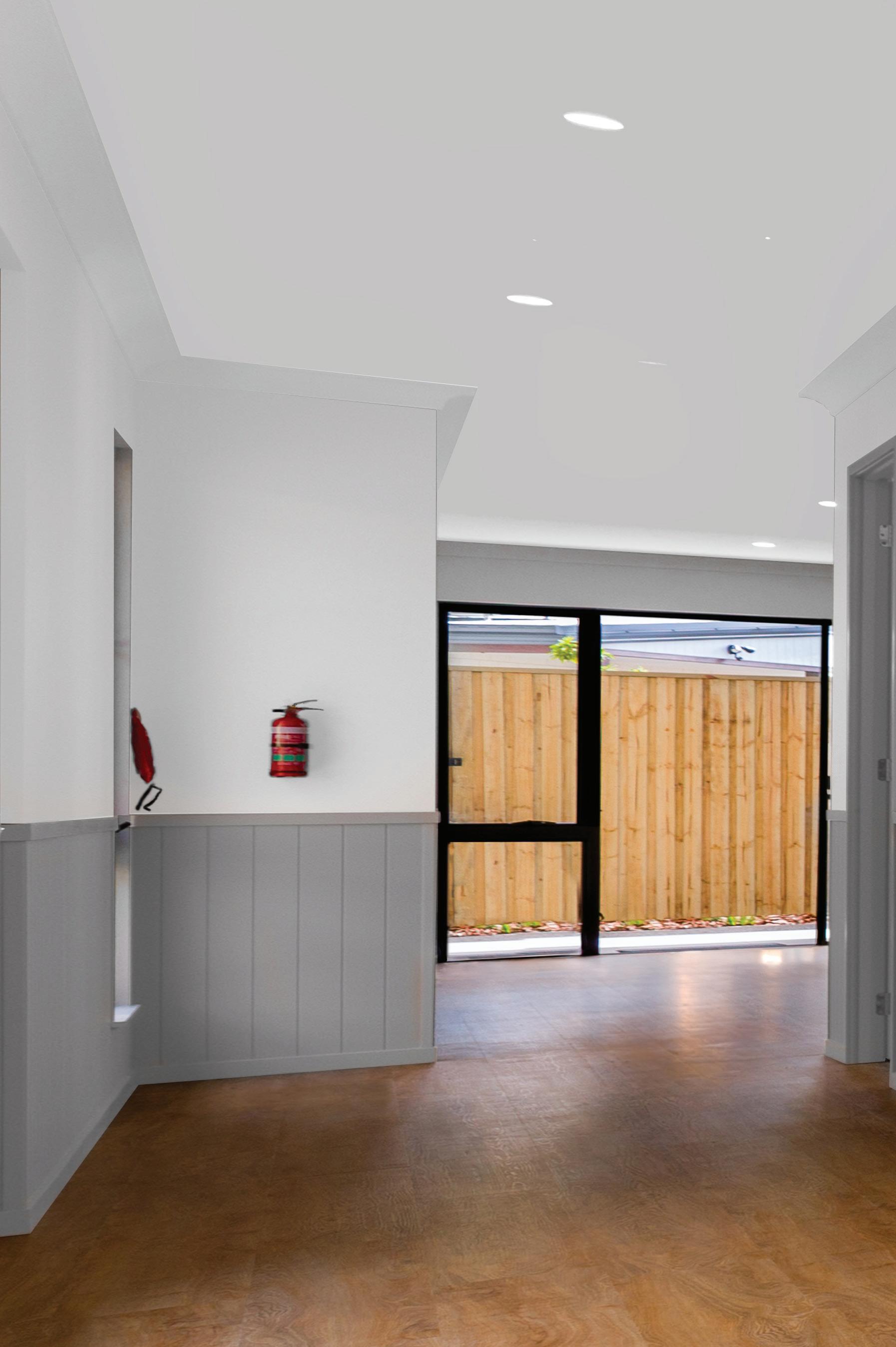
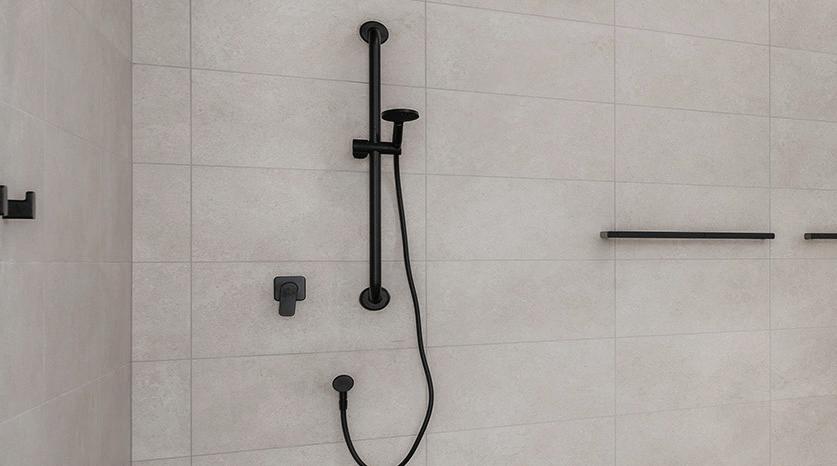

The goal of High Physical Support SDA is to create a living space that not only meets the physical needs of the residents but also aims to promote their dignity and quality of life. The design of these homes adheres to strict standards to ensure they are well-suited for their intended purpose.
When building to the SDA High Physical Support standards, additional consideration will need to be given to the selection of many materials and products, including:
• Entry ways, doors and door furniture, including automation
• Front-of-wall plumbing and tapware
• Emergency power solutions
• Adjustable joinery and benchtops
• Appliances
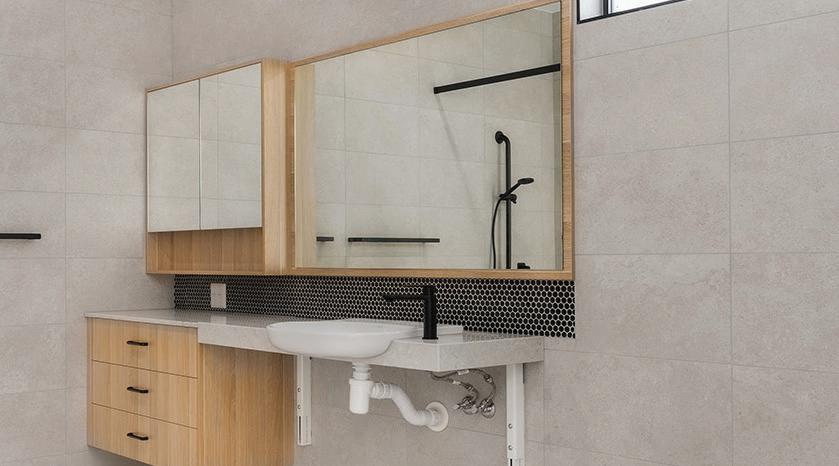
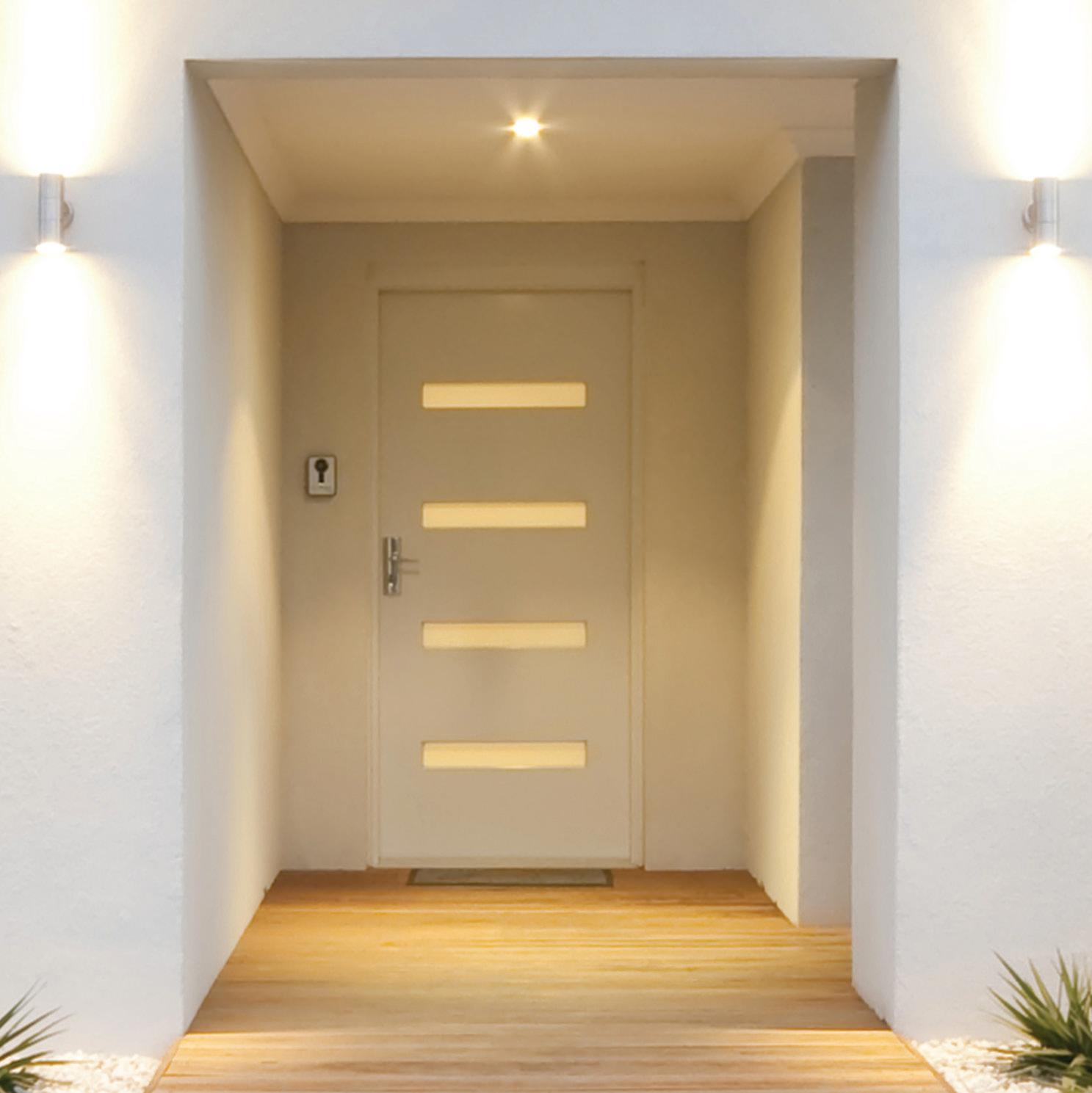
In Specialist Disability Accommodation (SDA), doors must adhere to specific standards, such as width and threshold height, to accommodate wheelchairs and other mobility devices.
Some SDA builds may also require door automation. The type of door and placement may significantly impact the ease with which residents and support workers navigate their living spaces. Using the correct doors promotes independence among residents, allowing them to move independently.
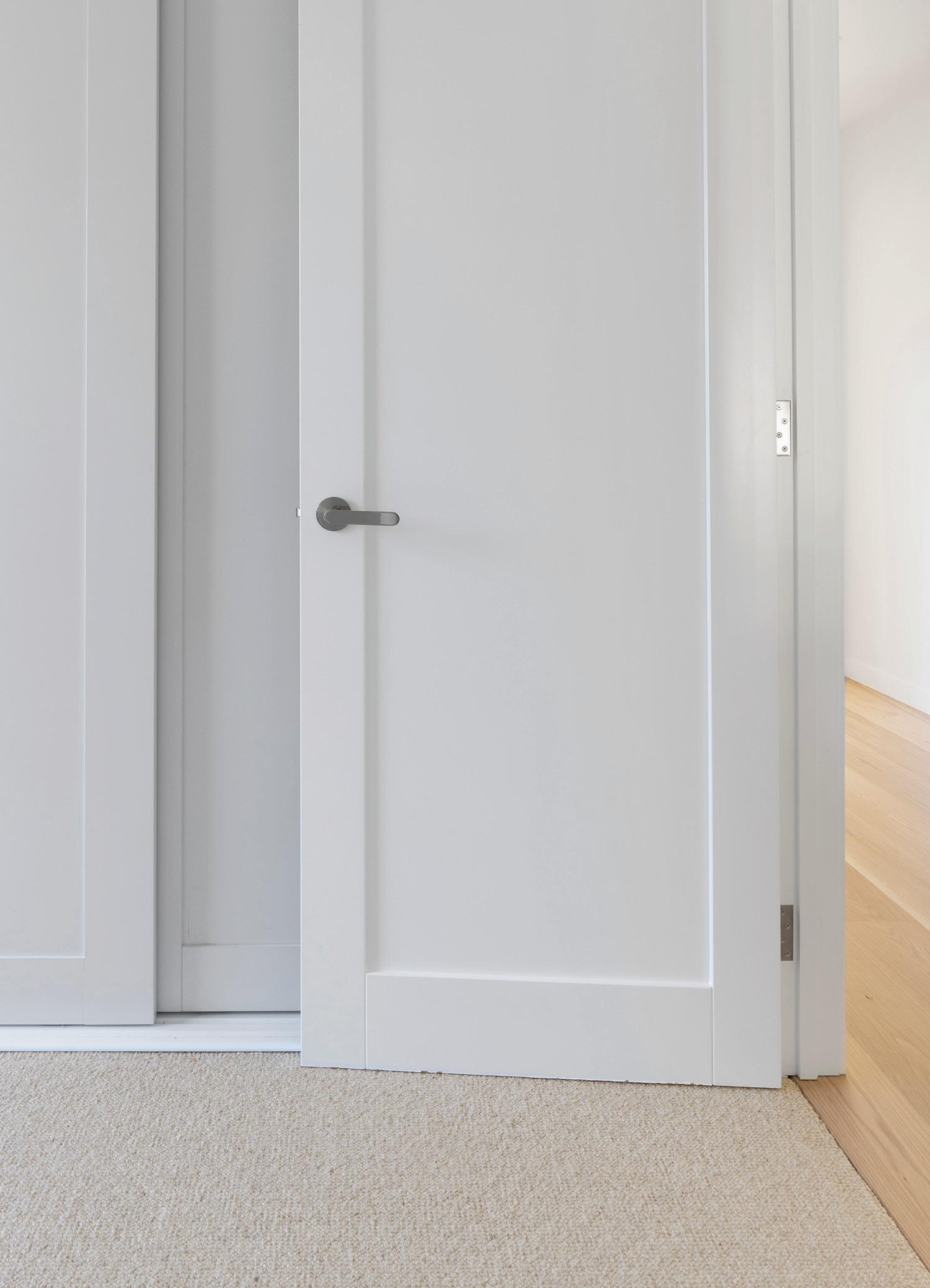
Bunnings has partnered with door suppliers and manufacturers that understand the importance of producing doors that meet the requirements of AS1428 suite of standards and SDA guidelines.
Our available range includes customisable doors to meet specific needs, such as:
• Solid Core, Acoustic and Fire Rated Doors
• Lined doors for high impact resistance, improved hygiene and low maintenance
• Anti-ligature options

SDA requirements specify that entry, passage, and internal doors are durable and provide minimum opening clearance as follows:
SDA Build Type Minimum Opening Clearance Improved Liveability 820mm Robust 820mm Fully Accessible 900mm High Physical Support 950mm
Source: https://www.ndis.gov.au/
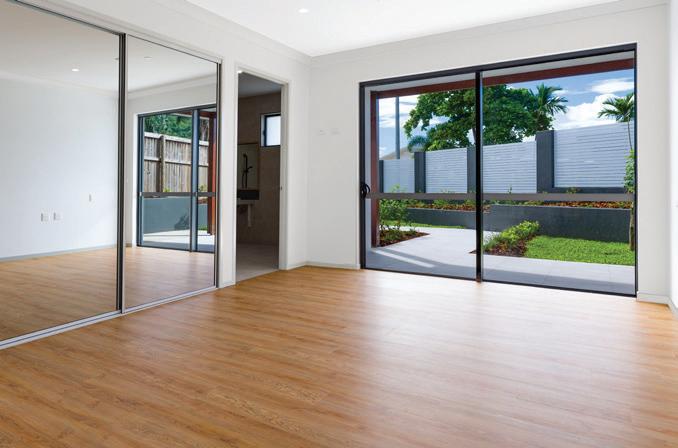
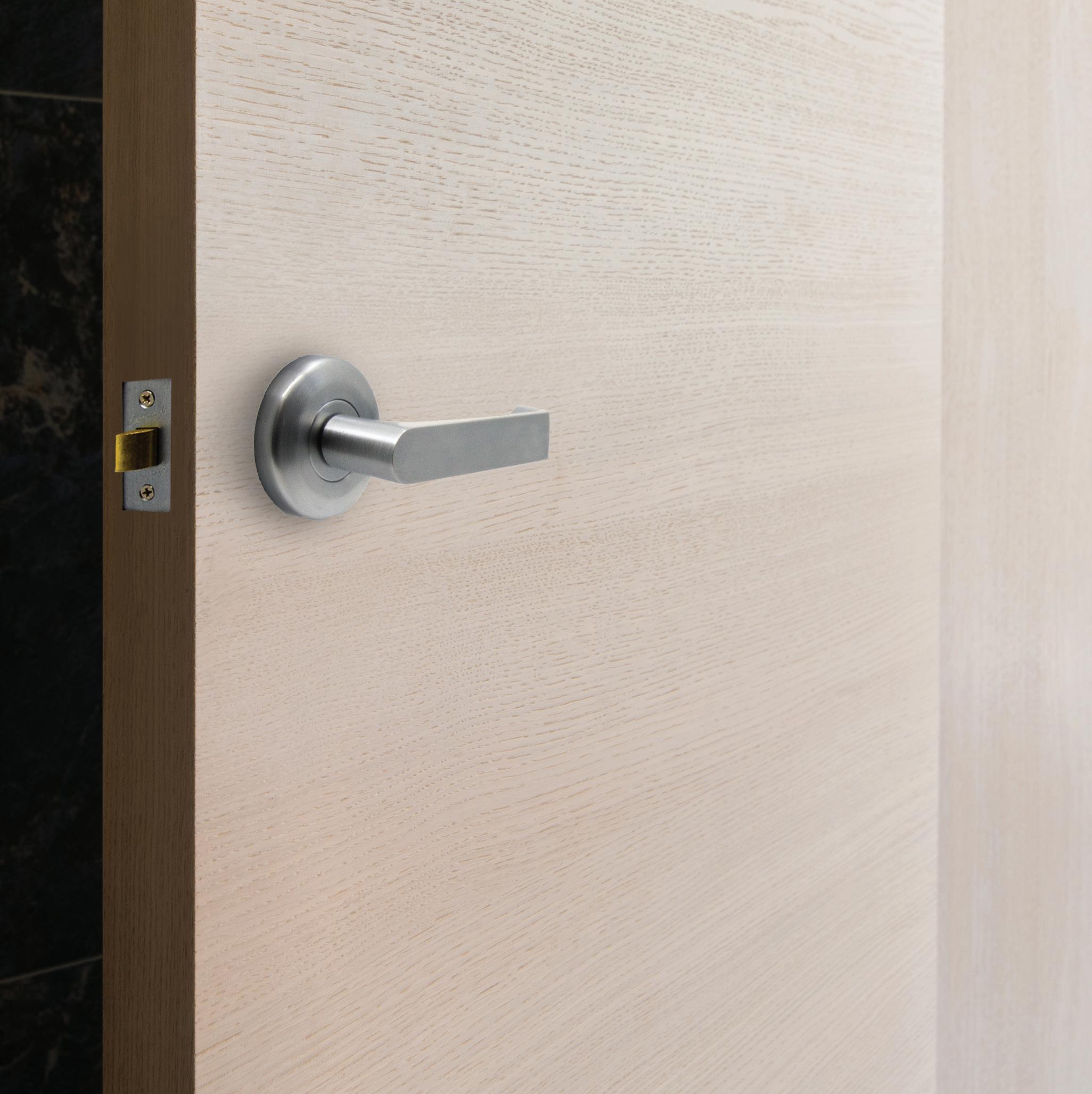
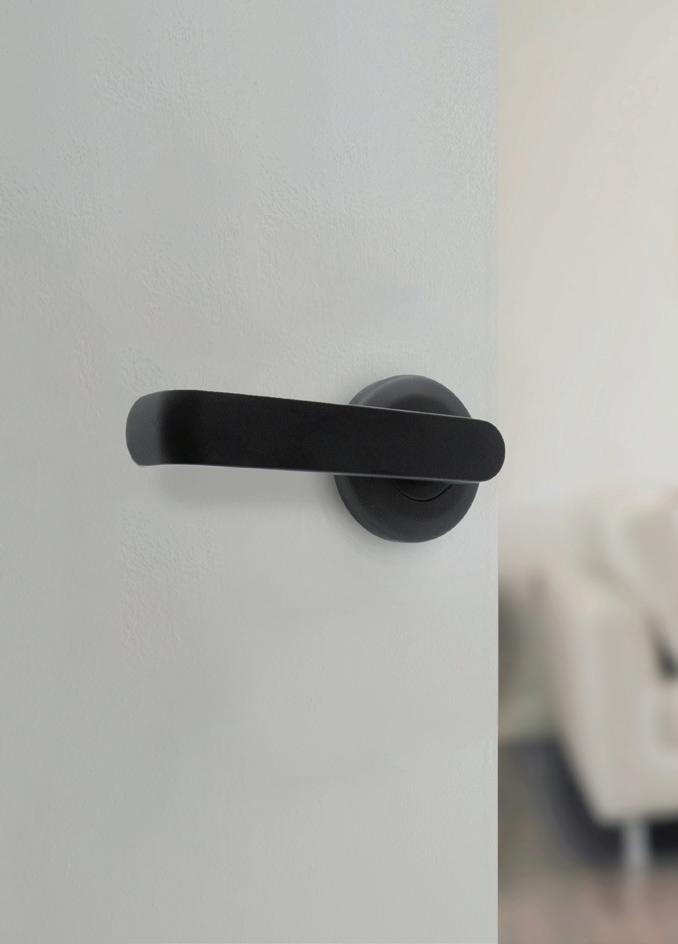
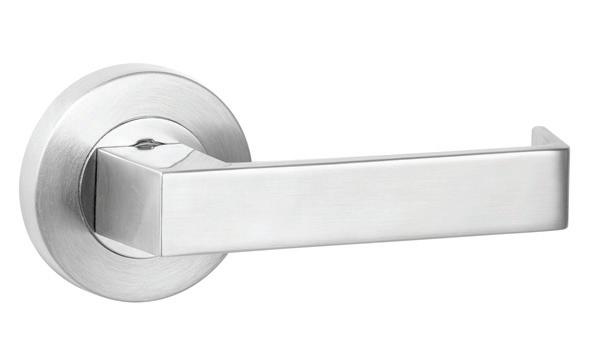
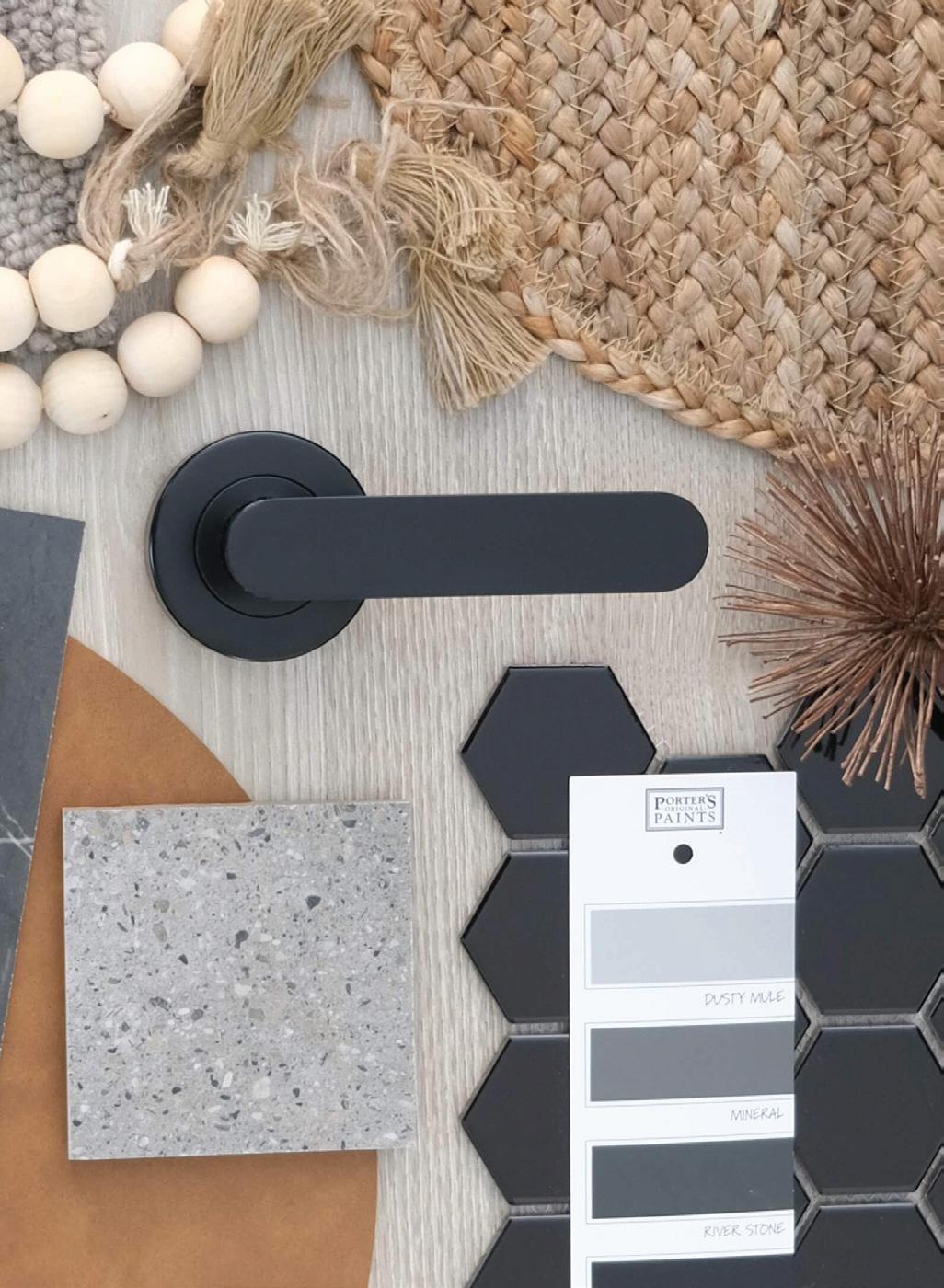
Choosing the right door furniture is crucial in SDA builds to help provide accessibility and safety for residents. These elements need to be easy to operate, with consideration for individuals with low strength or dexterity.
Door hardware may aid peoples independence and may also be aesthetically pleasing creating a warm environment.
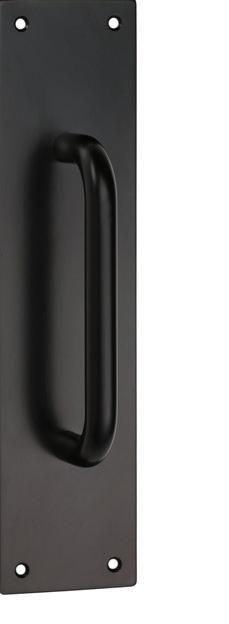
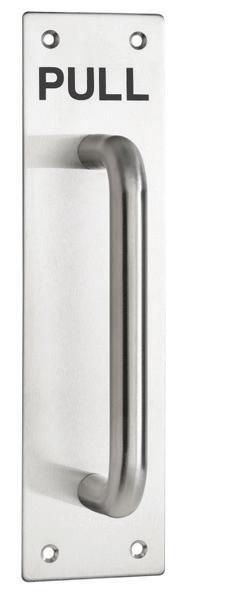
Our door hardware selection features contemporary designs and colour options to compliment any decor, and are durable and AS1428 compliant.


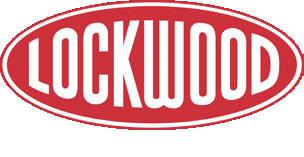
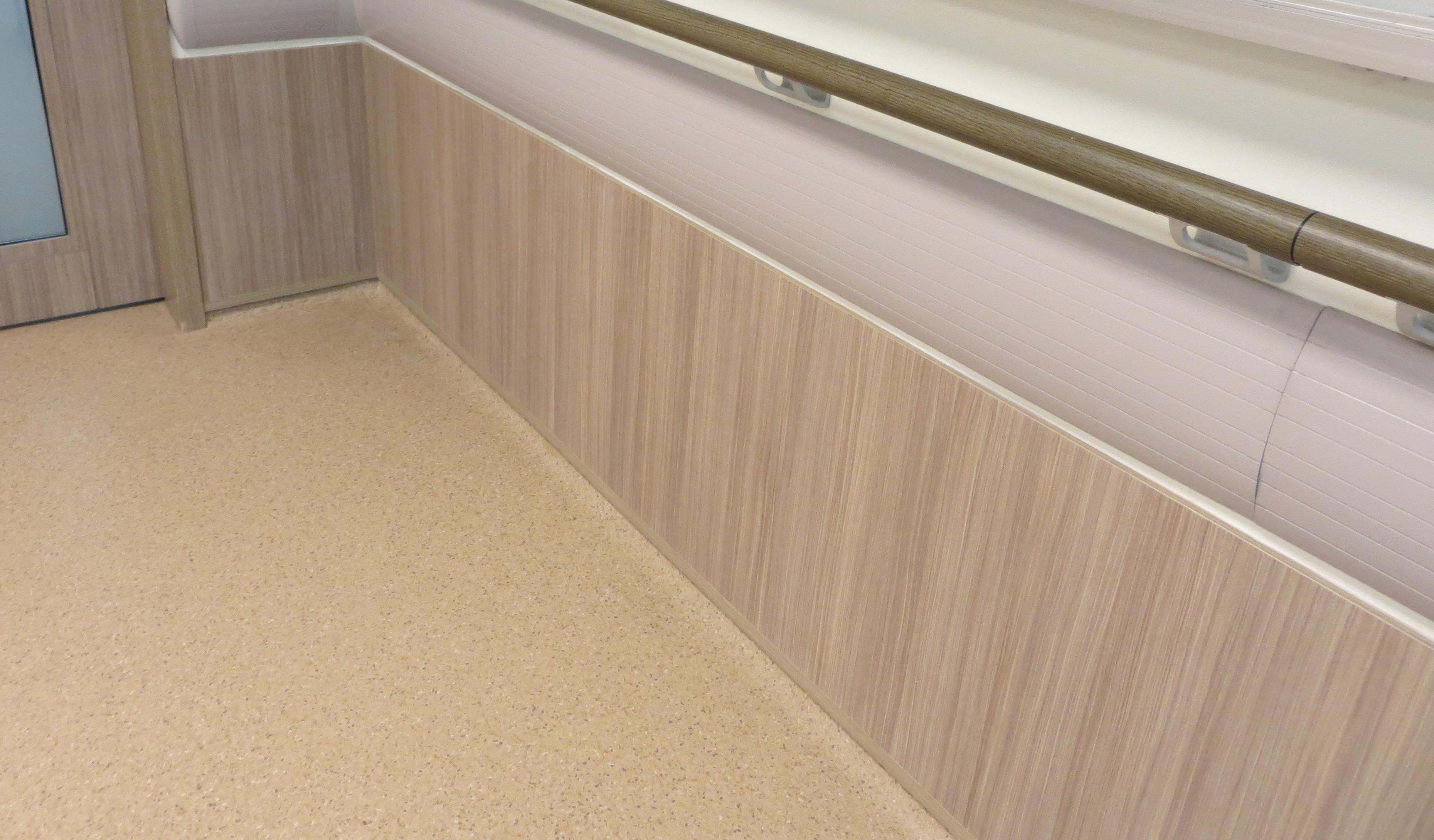
In Specialist Disability Accommodation (SDA), wall coverings aim to provide robust protection against wear and tear, which is particularly important in environments where wheelchairs or other mobility aids are used.
They can be used to enhance the visual environment, which may be beneficial for residents with visual impairments or cognitive conditions. Contrasting colours and textures may aid navigation and spatial awareness.
Wall coverings can also contribute to the acoustic comfort by absorbing sound, thereby reducing echo and noise levels, may be helpful for individuals with auditory sensitivities.
We have partnered with Gerflor Australia to provide a range of wall coverings that are easy to install and meet SDA design requirements. These products are fire, tear, stain and chemical resistant, waterproof and hygienic and allow for customisable designs.
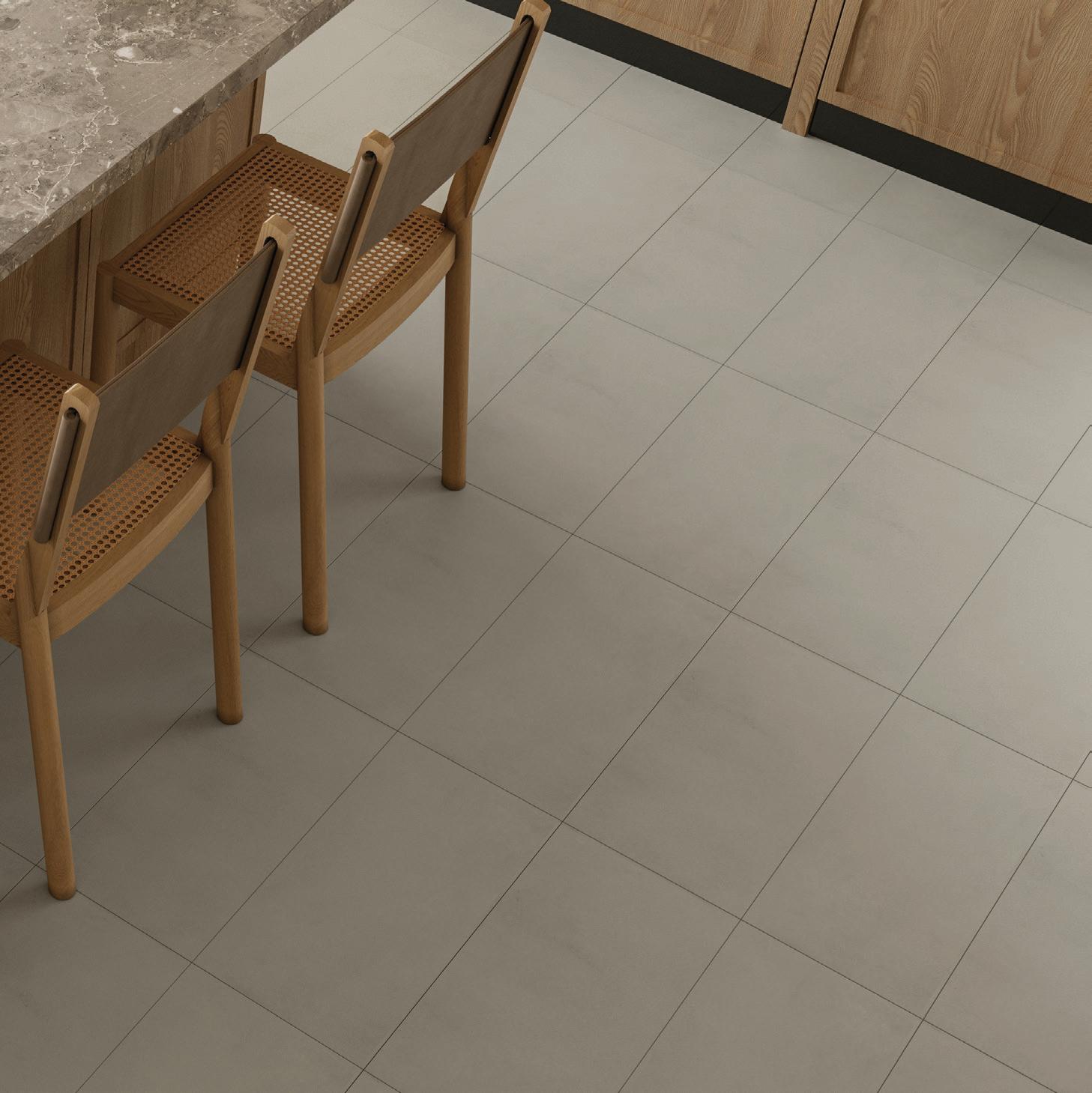
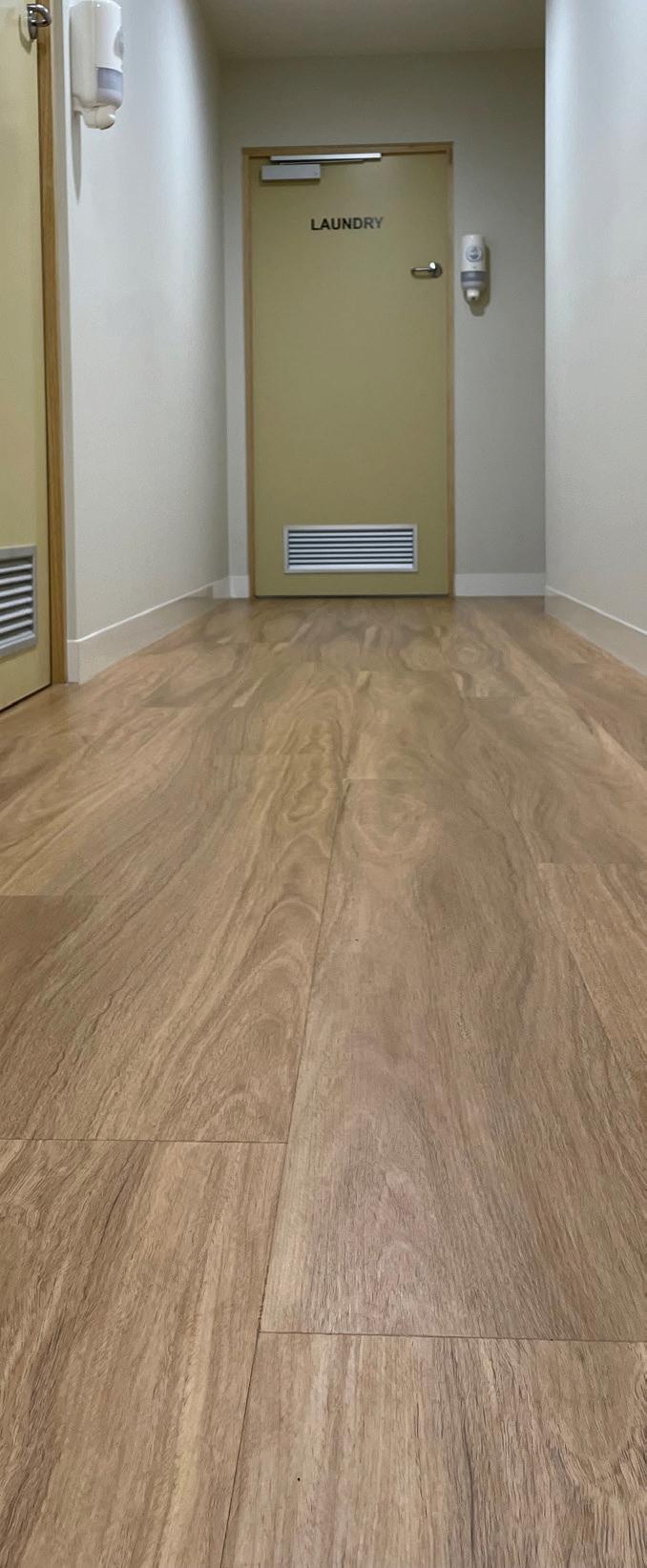
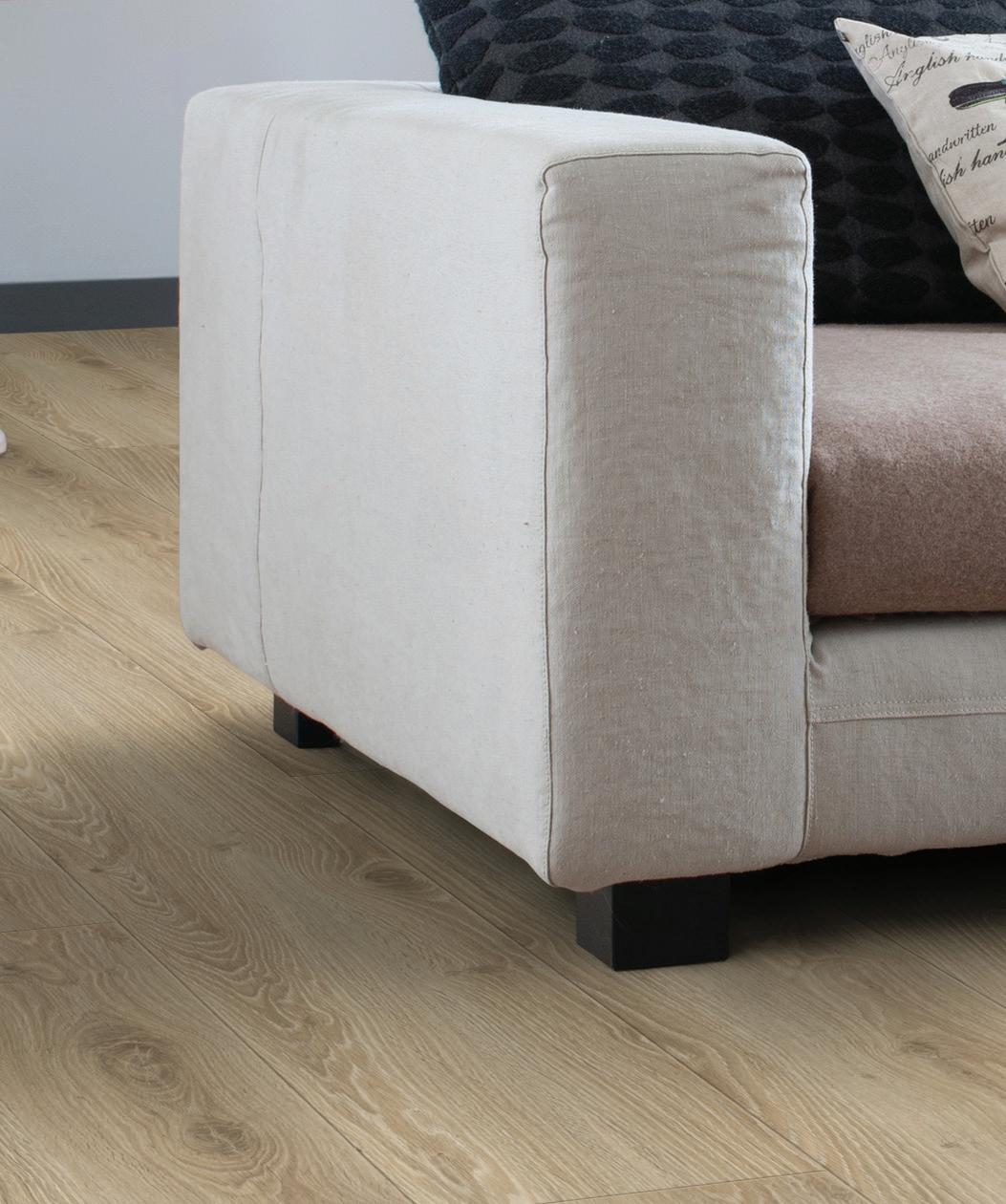
The correct choice of product for flooring in Specialist Disability Accommodation (SDA) is imperative. Non-slip surfaces may help prevent falls, while smooth, even flooring aims to allow for easier movement of wheelchairs and walkers.
All flooring for bathrooms, kitchens and laundries must be tested to a minimum slip resistance rating of P3 or R10. Carpeting must meet a requirement of a maximum total height of 15mm.
Source: https://www.ndis.gov.au/
It’s also important to consider the durability and ease of maintenance, as well as the sensory experience, ensuring it’s not too harsh for those with sensory sensitivities.
The right flooring could potentially enhance mobility,
reduce the risk of accidents, and contribute to a more comfortable and appealing living environment, making it an essential component of the SDA guidelines.
We can supply a range of both practical and attractive P3/ R10 minimum rated flooring via our partnerships with Johnson Tiles and Gerflor.
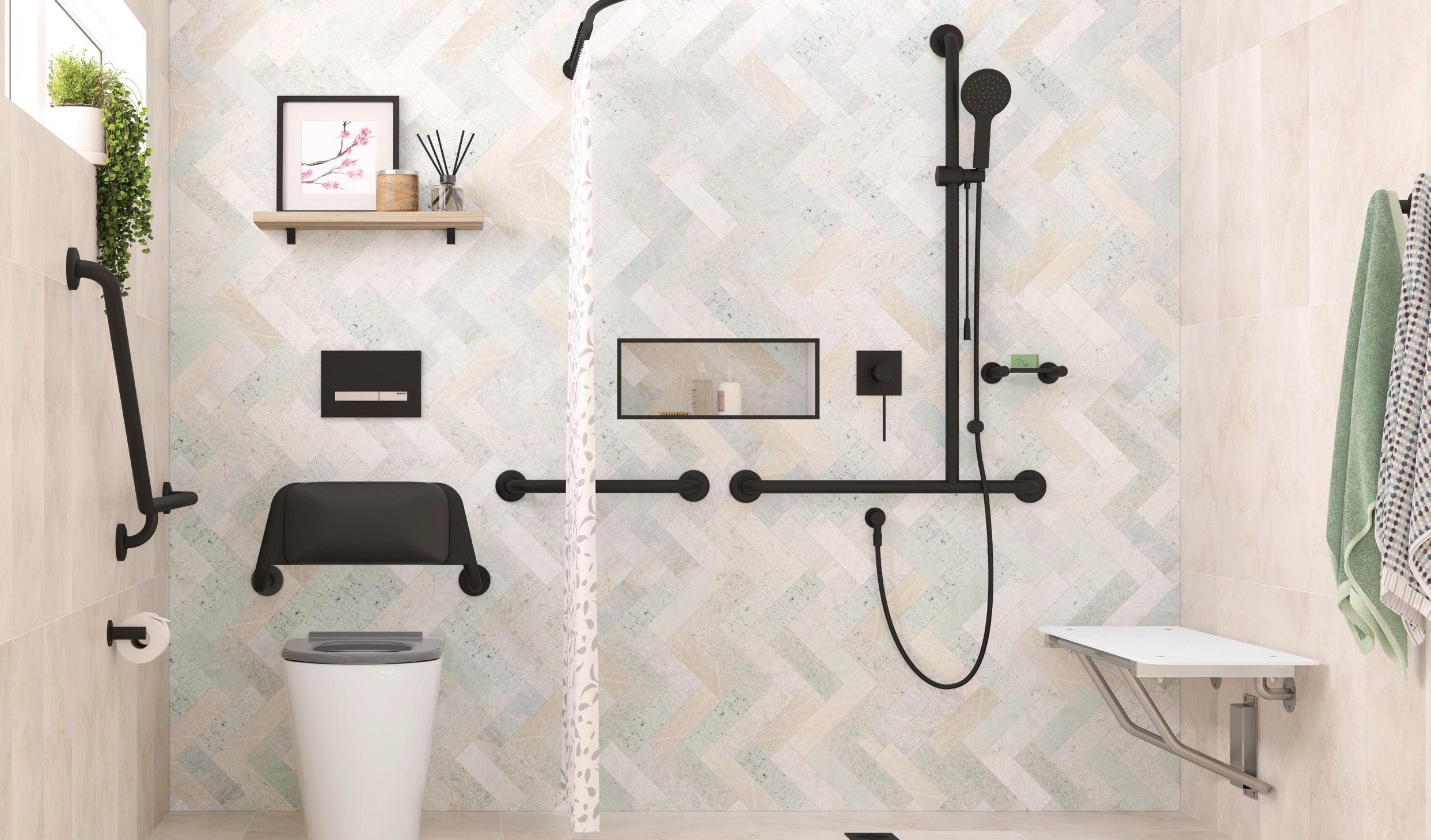
With bathrooms potentially being the most hazardous area in the home for people, SDA design standard stipulates strict requirements for sanitaryware, basins, and tapware within participant bathrooms.
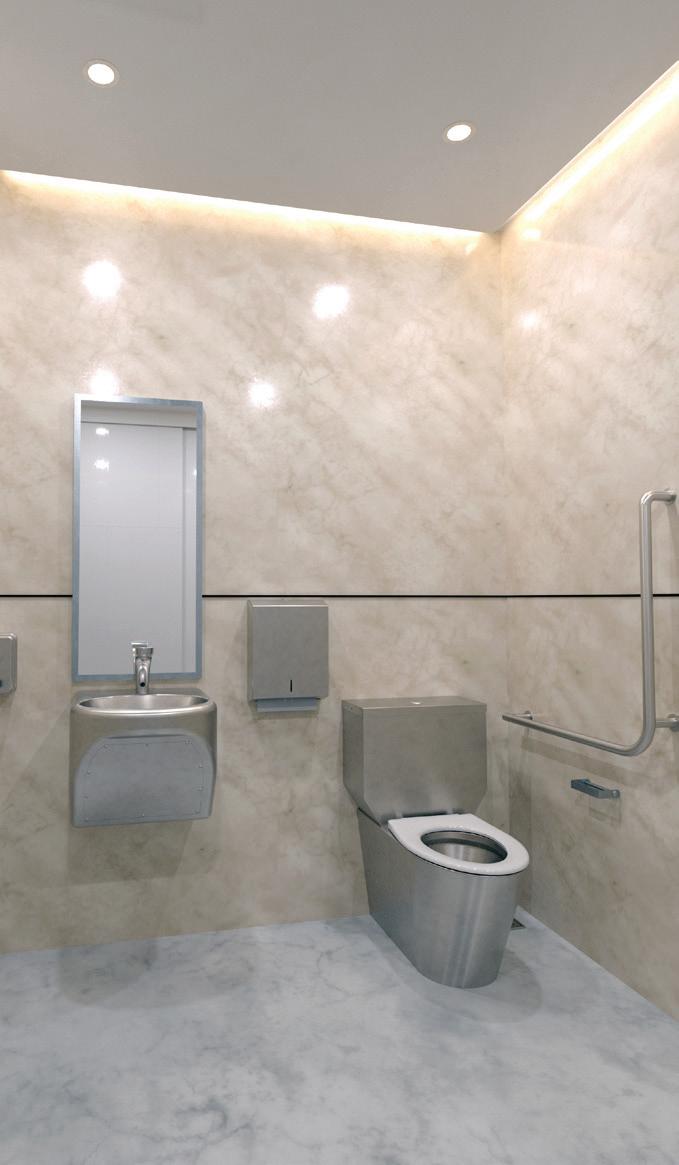
Aspirational image only
This includes specfiic requirements for home-like, non-insituational ranges for use in Robust builds. Fixtures must be reliable and compliant to AS1428 standard.
Aesthetically pleasing lever taps or sensor based taps may assist those with limited hand strength dexterity, while a toilet with appropriate height and support is designed to help people with different mobility requirements.
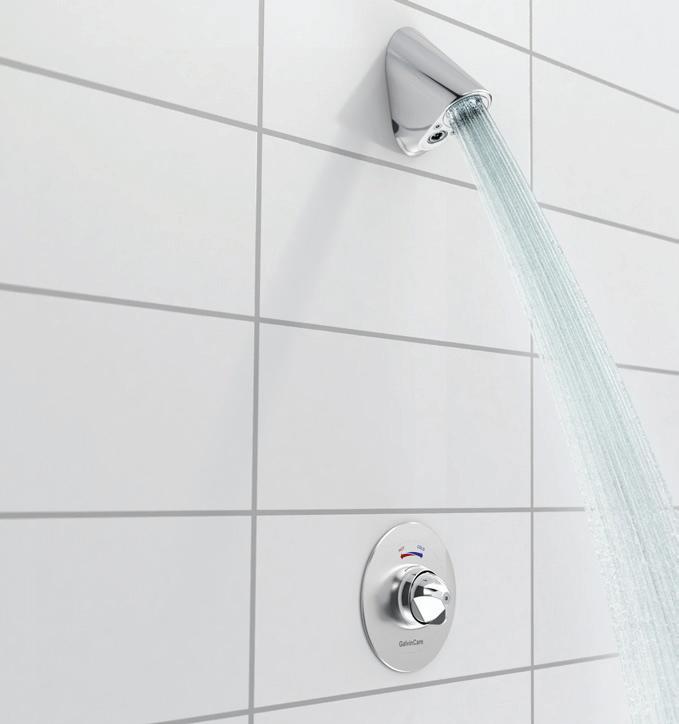
Working with specialist suppliers, we have assembled a range of compliant products that achieve the AS1428 suite of standards and SDA guidelines, ensuring confidence in specification and design requirements for this area of the build.




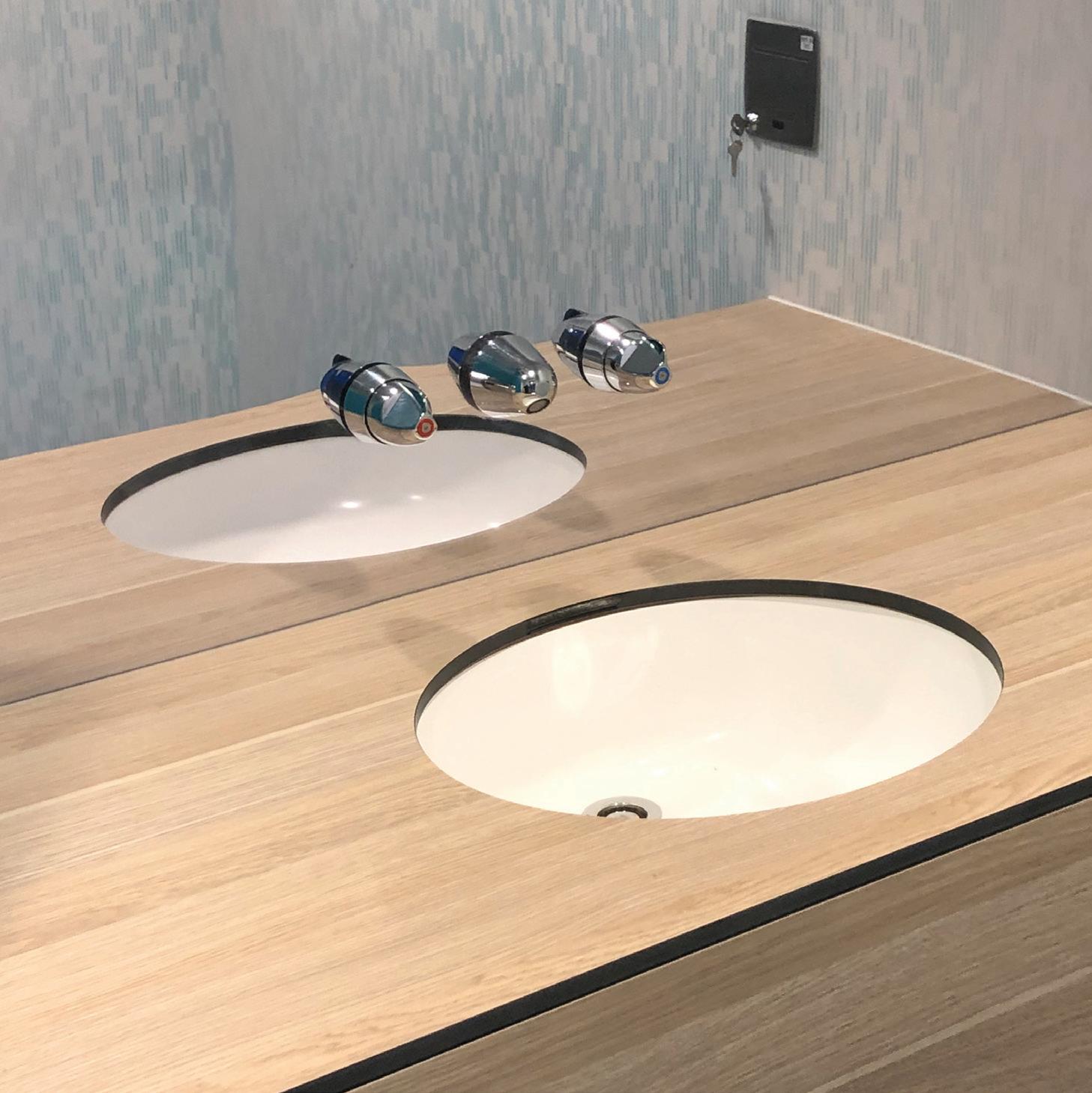
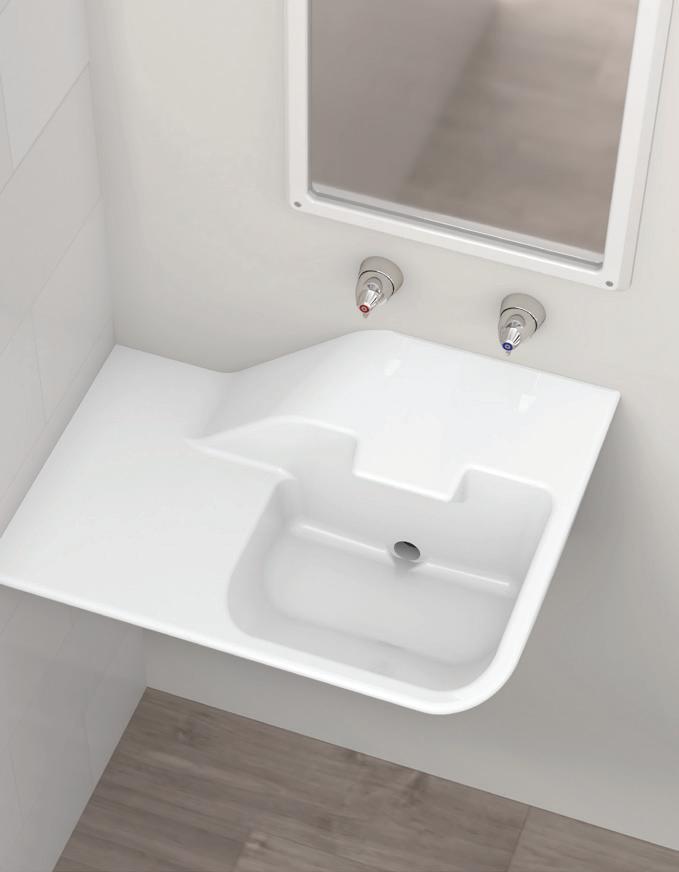
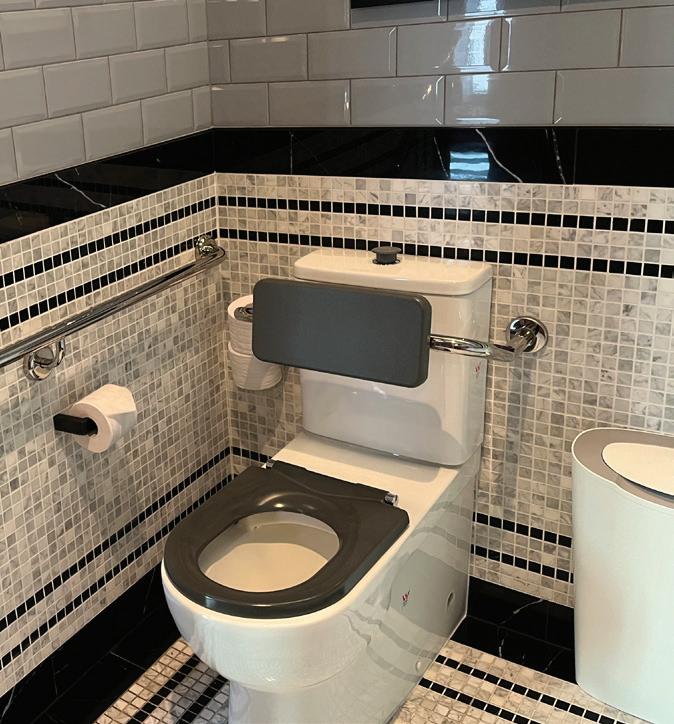
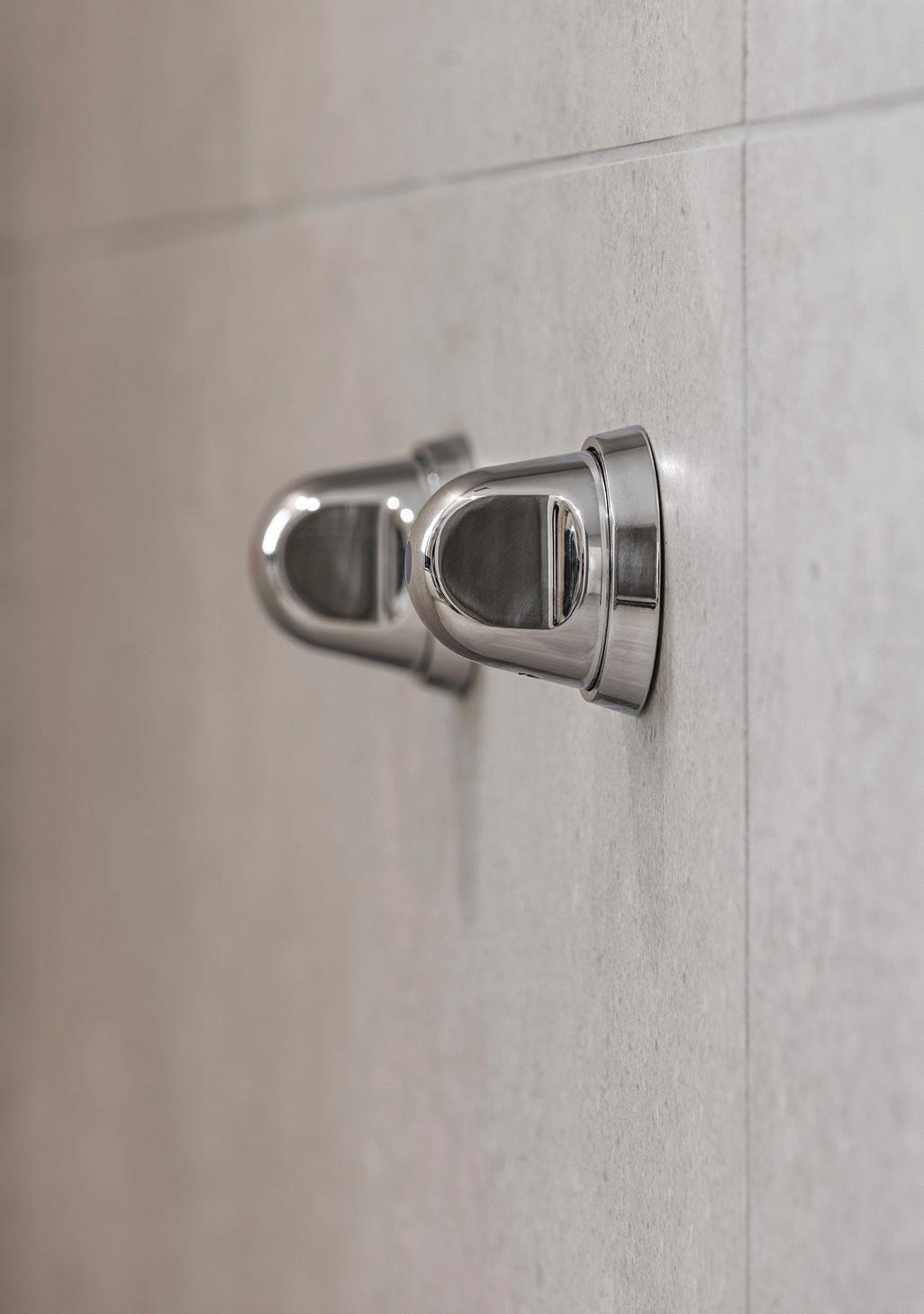
Along with sanitaryware and tapware, accessories installed in the bathrooms of Specialist Disability Accommodation are required to meet the AS1428 suite of standard to ensure the safety and comfort of people with a disability and their support worker.
Compliant grab rails may help avoid a potentially disastrous fall, and provide a person with a disability with independence, and confidence and reduce tasks for their support workers.
Our range, sourced from suppliers known for their reliability and quality, includes:
• Grab rails, including a selection of stylish options with various finishes
• Mirrors, including acrylic options for Robust build requirements
• Anti-ligature range
• Shower seats and backrests
• Shower tracks and curtains
• Safety glass for shower partitions
• Towel rails and toilet roll holders
• Durable and vandalproof options


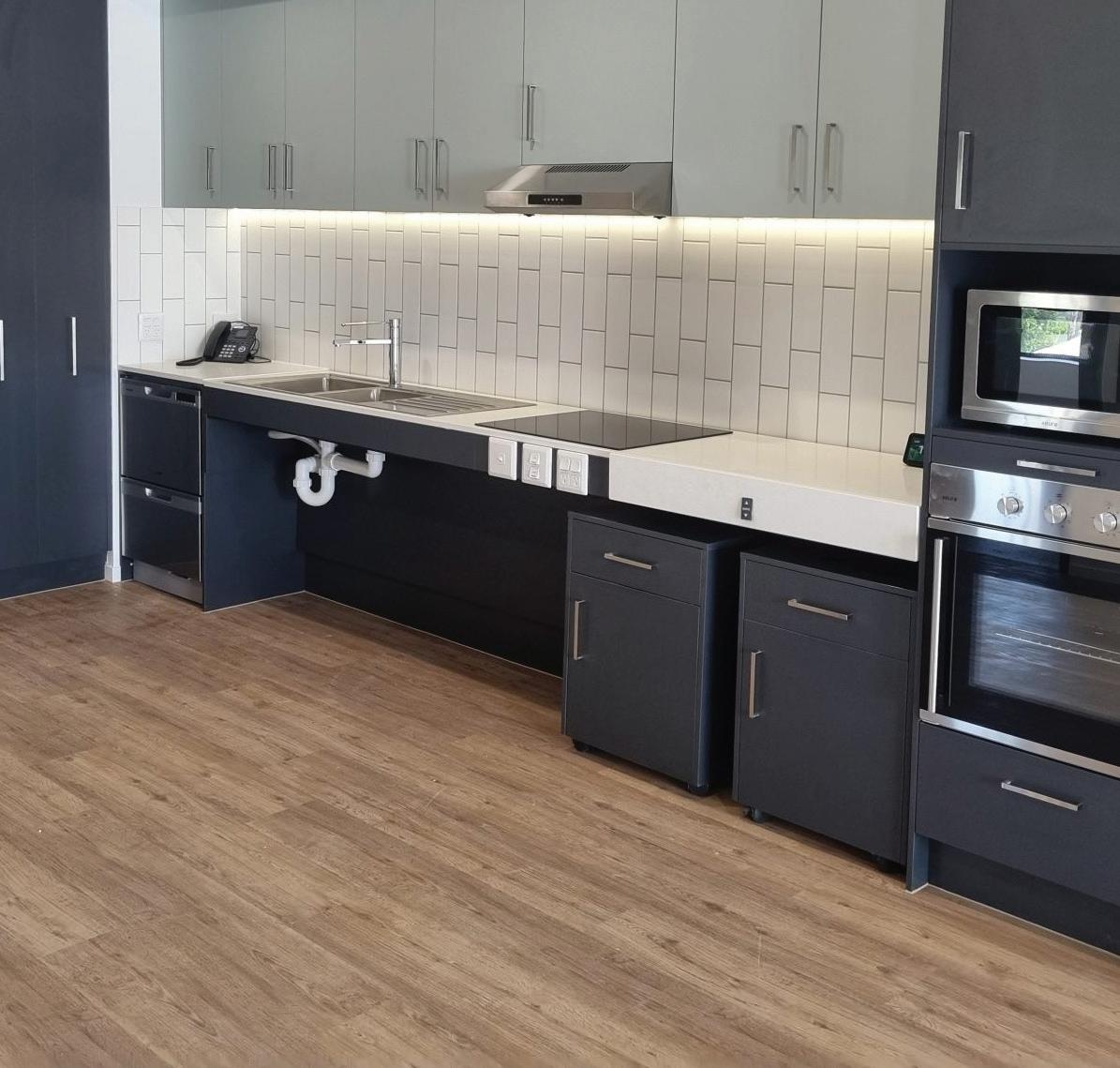
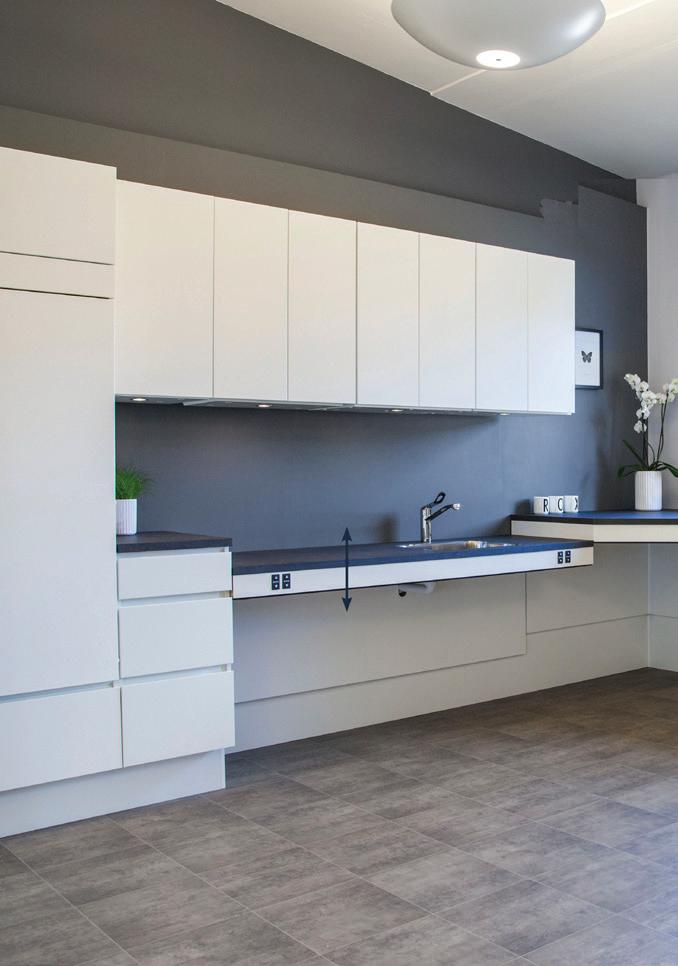
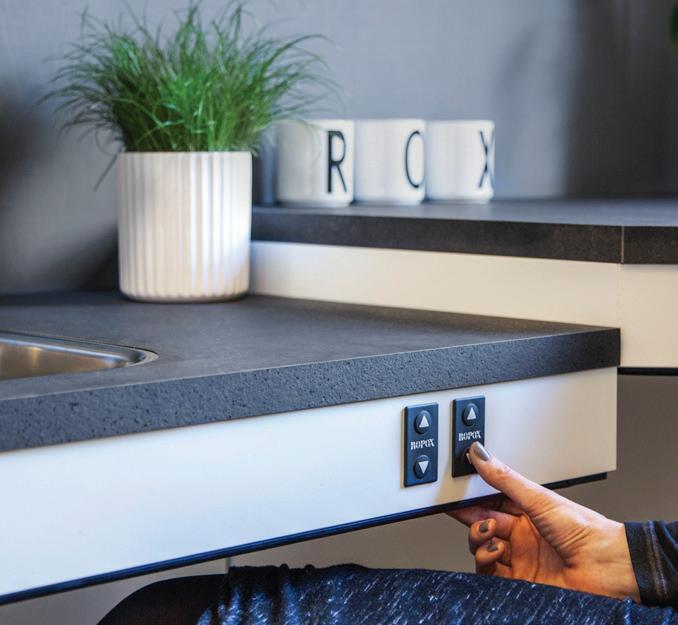
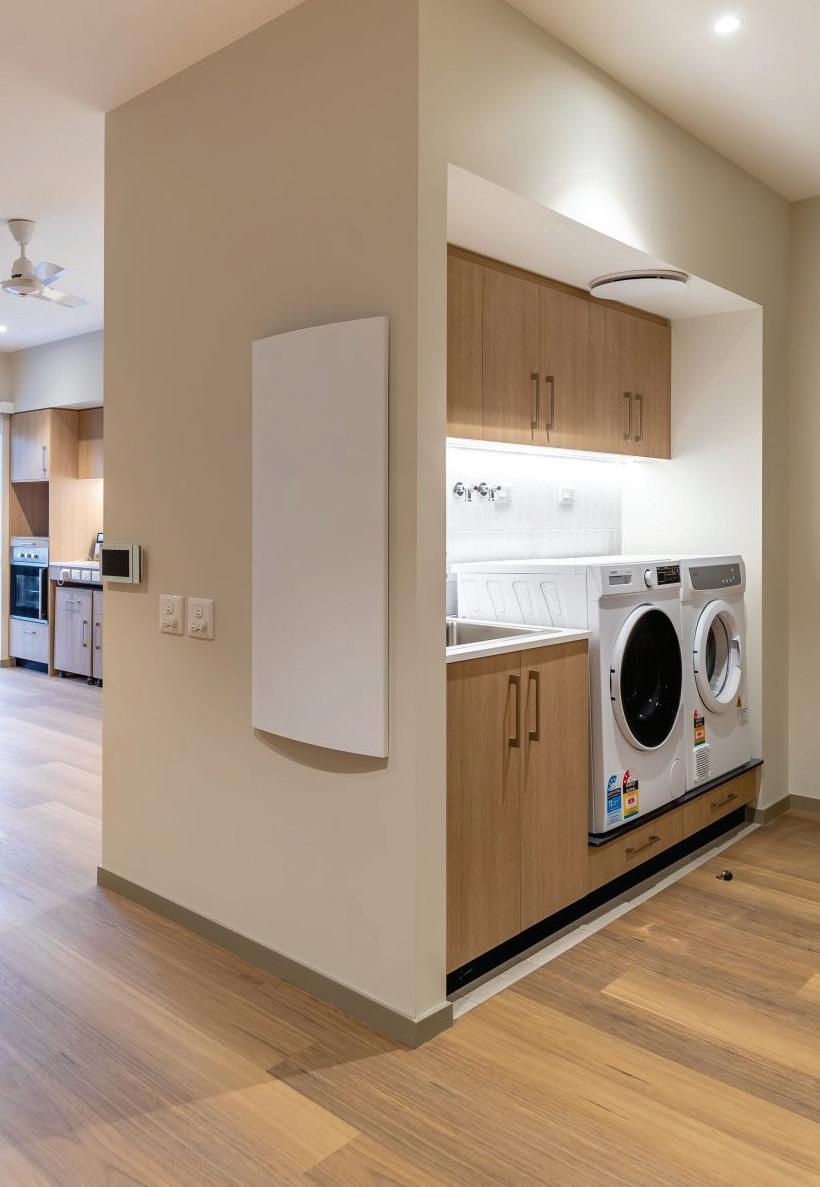
A well-designed and built kitchen or laundry may help people with a disability to navigate and utilize spaces safely and efficiently.
Ergonomic features such as adjustable benchtops can cater to a range of physical needs, reducing strain and the risk of injury.
Bunnings partners with Amorini Australia for SDA Joinery supply and installation services. Operating for the past twenty years, Amorini
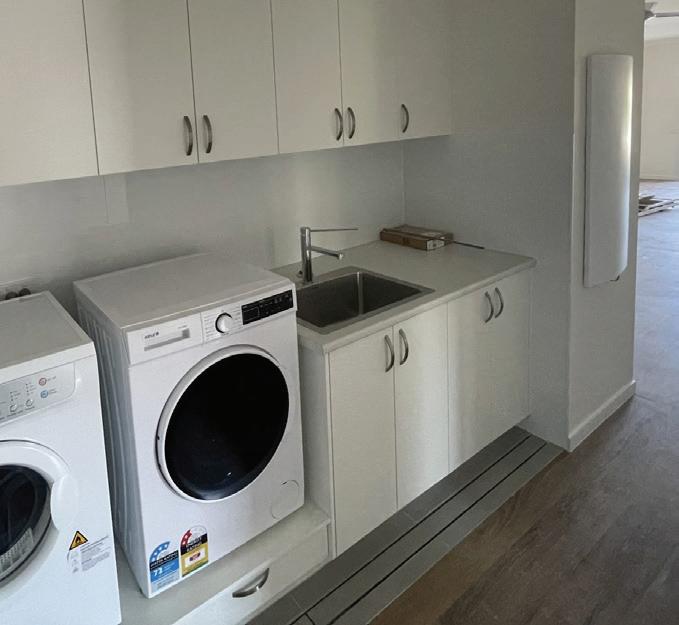
Australia has experience designing, manufacturing, and installing joinery that supports the relevant guidelines, including the incorporation of the Hafele systems.
Our range includes kitchen sinks, tapware and handles to meet SDA requirements, custom cabinetry with an install option, adjustable benchtops and stainless-steel options for Robust builds.

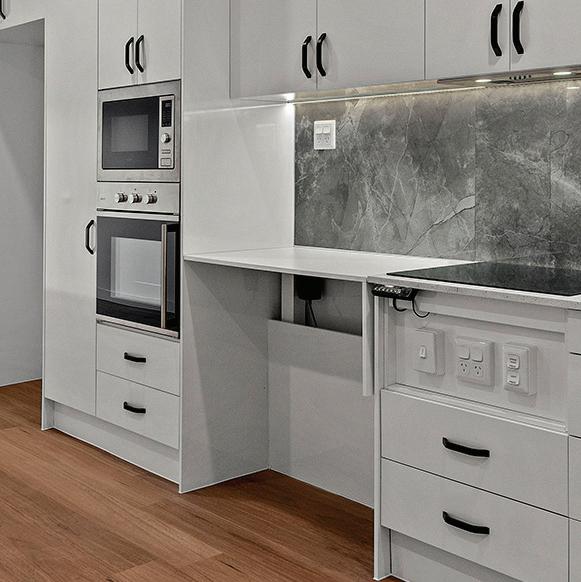
Specialist Disability Accommodation (SDA) build types require the provision of a fixed cooktop with rangehood, an inbuilt oven and a dishwasher. Appropriate appliances may reduce physical strain and promote independence, as well as ensuring safety.
As an example, a wall oven with a side-hinged door and shelves on telescopic runners may allow easy access for wheelchair users. Similarly, a cooktop with front or side controls may be operated
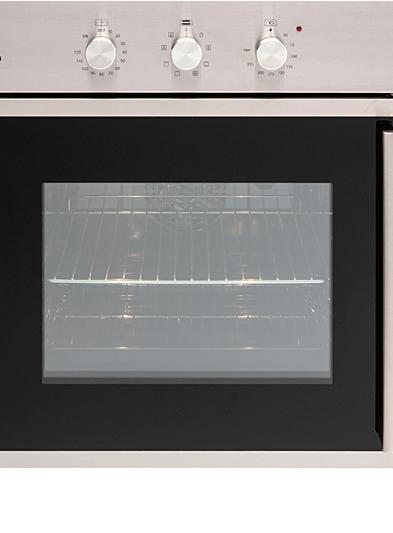
by individuals with limited reach and larger typography may help people with low vision.
By choosing appliances that cater to the specific needs of residents, we aim to create an environment that supports their abilities and fosters self-reliance, which could have a profound impact on their quality of life.
Bunnings Trade has partnered with manufacturers and suppliers that produce
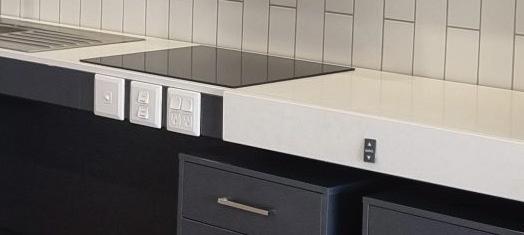
appliances tailored to the SDA market to bring you a range that meets all requirements.

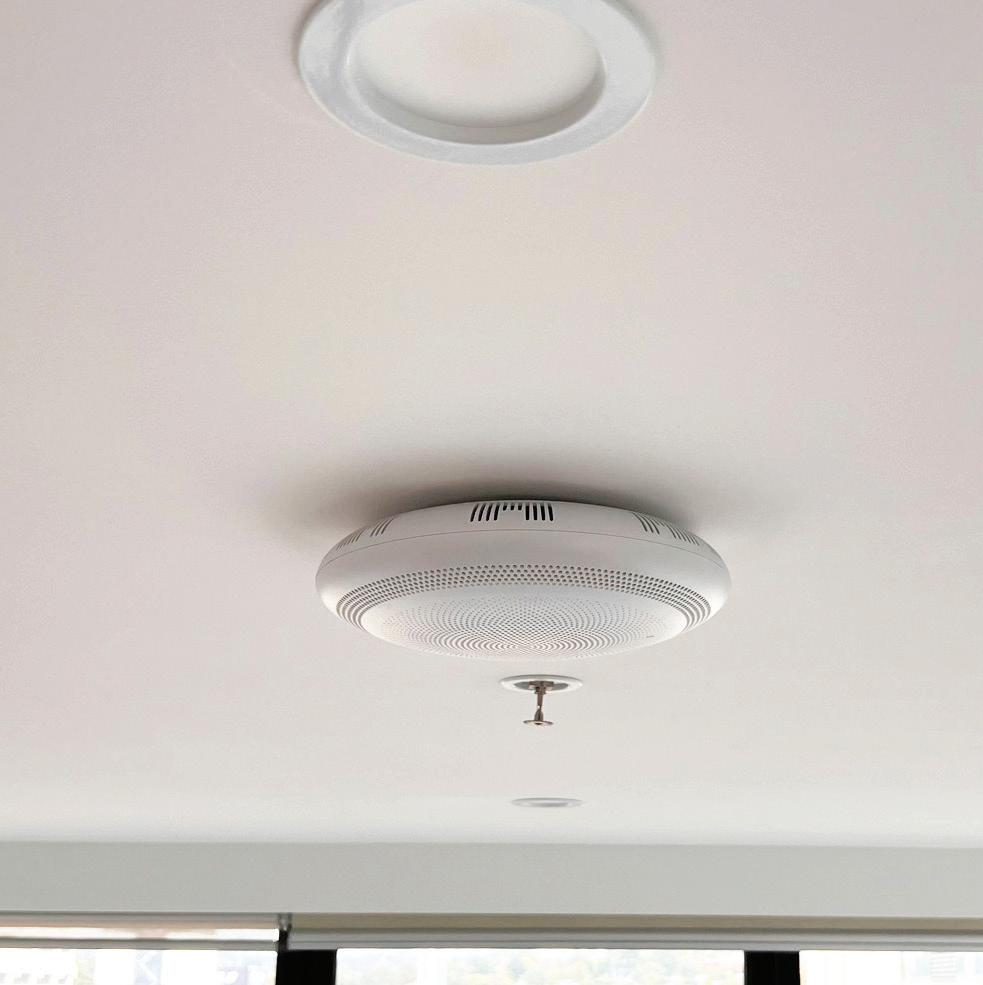
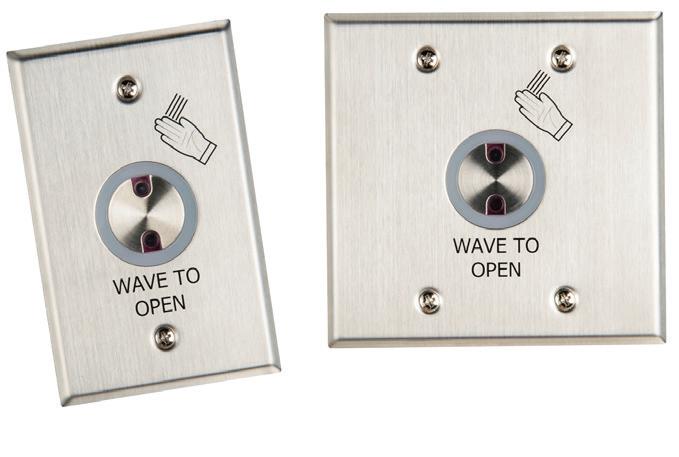
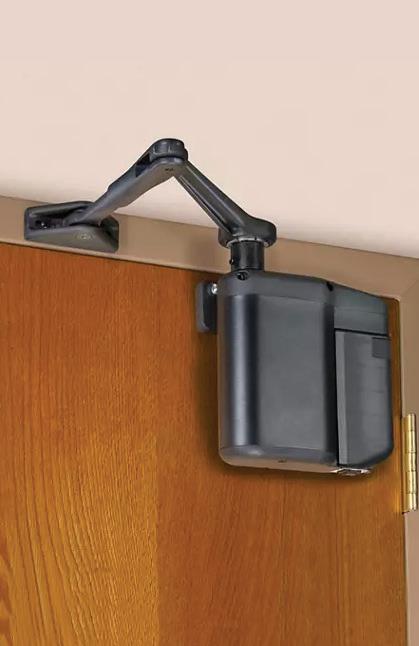
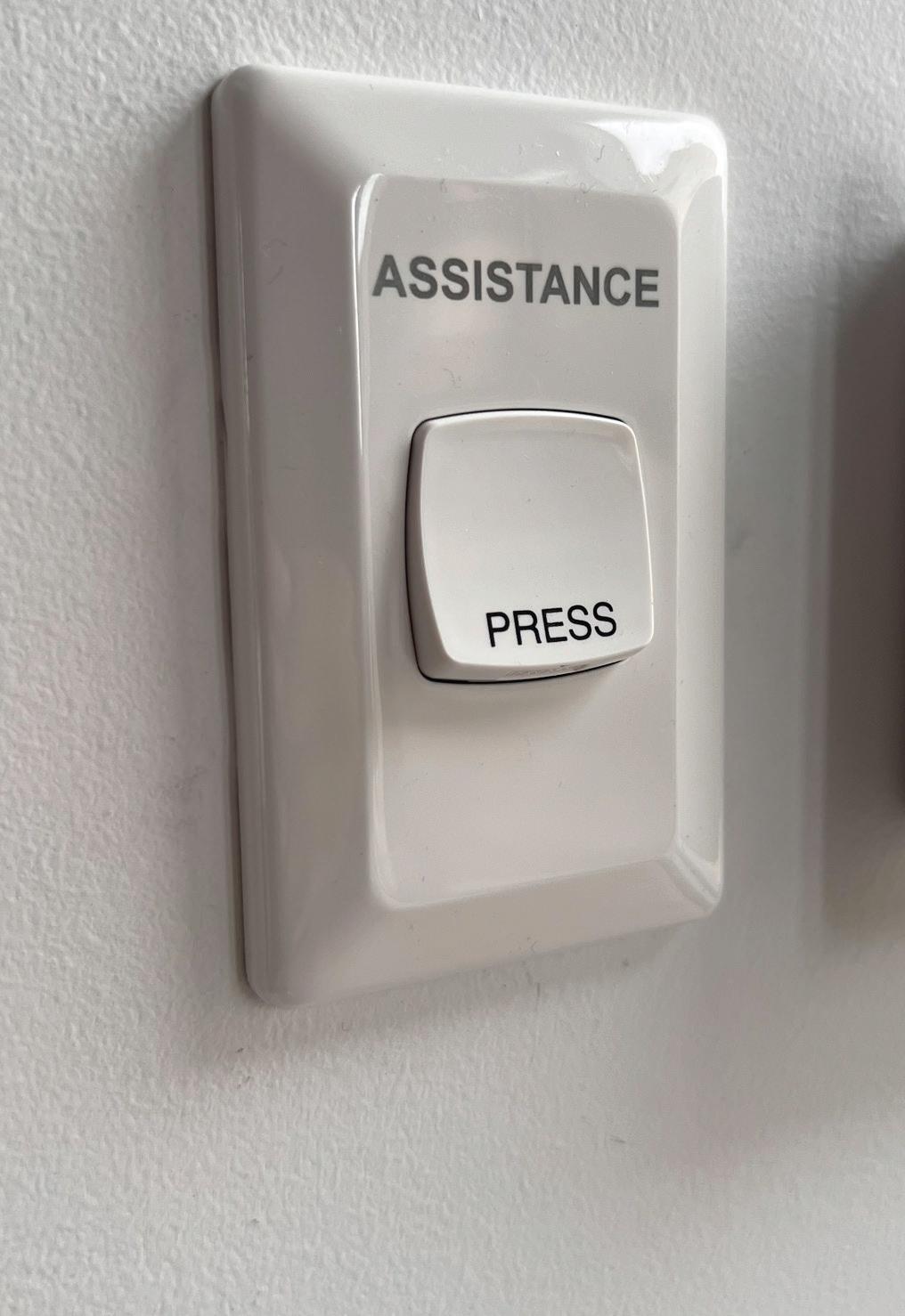
Assistive technology may significantly enhance the quality of life for people living with disabilities. Innovations such as voice-activated devices, smart home systems, and wearable health monitors, aim to empower people by elevating the ease and safety with which everyday tasks can be performed.
Bunnings Trade has partnered with Livigy, a leading Australian integration company for Smart Assistive Technology. Livigy has curated a range of packages to meet SDA design standards, exclusively for Bunnings.
From basic setups to advanced systems, products can be seamlessly integrated, adapted and upgraded as required. Each Livigy package is sold pre-configured, with 24/7 phone support for remote commissioning. Livigy’s
team of skilled professionals works closely with builders, developers, occupational therapists and caregivers to deliver seamless integration of their assistive technologies into homes and communities.
The Bunnings Assistive Technology offer includes whole of house automation, UPS (Uninterrupted Power Supply), door locks and security, electrical and lighting, entry automation and individual safety to provide your builds with the latest in smart assistive technology, helping to create accessible and inclusive living spaces.

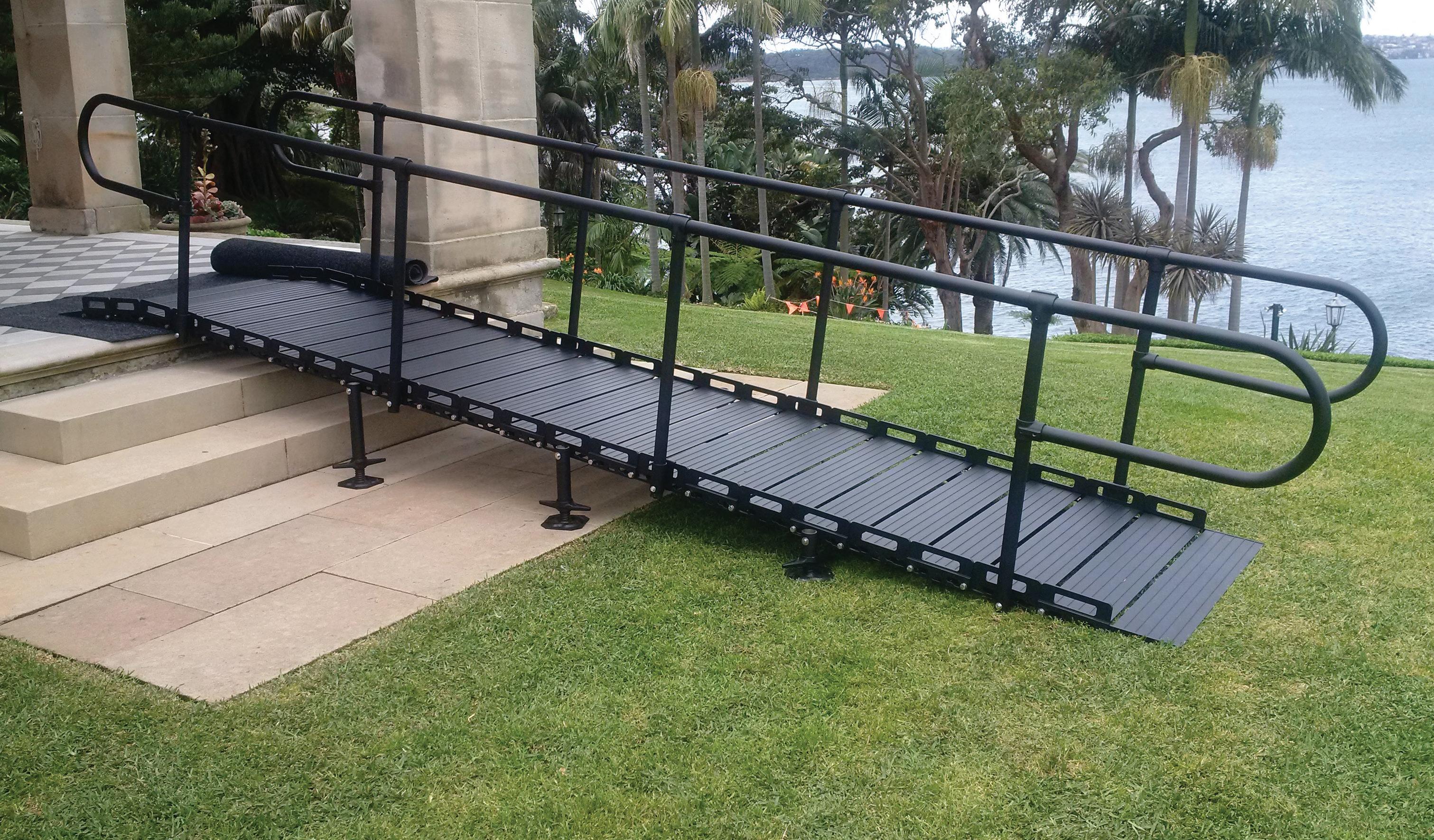
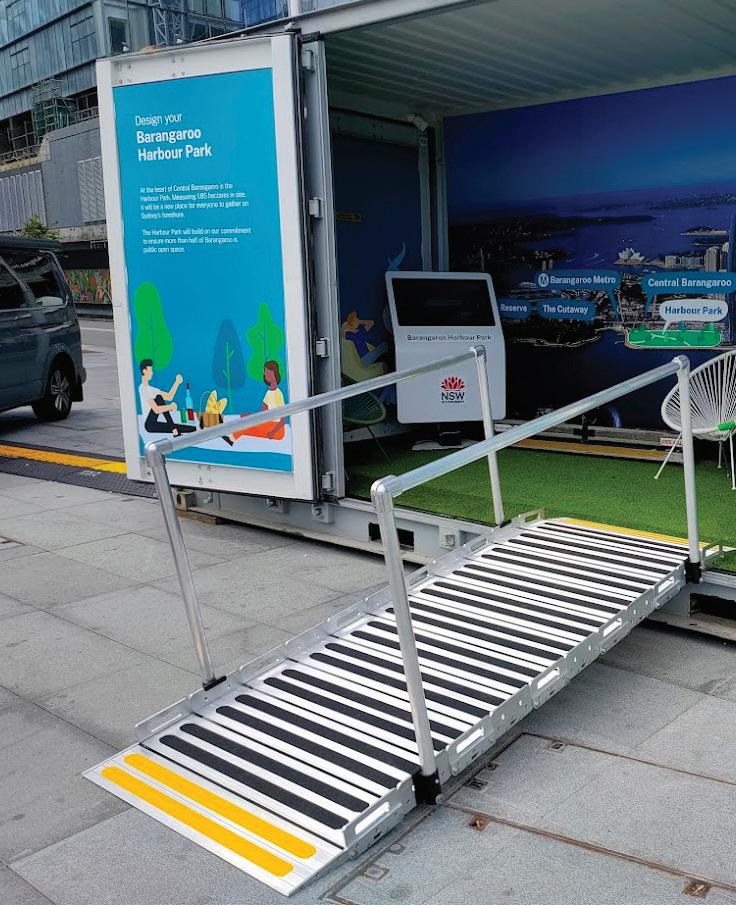

Specialist Disability Accommodation (SDA) design guidelines require the provision of a step-free access to homes to ensure persons using mobility aids or wheelchairs may enter their home environment safely and independently.
Providing suitable entryway access is not just about accessibility it’s about dignity. Ramps provide a smooth transition from different levels, aiming to reduce the risk of accidents, whilst also promoting comfort. They also showcase inclusivity and demonstrate a commitment to catering for all needs. Ultimately, these adaptations transform a living space where residents may feel truly at ease and autonomous.
Bunnings Trade has partnered with suppliers that specialise in design, and tailoring of access
and threshold ramps to offer modular and steel entryway ramps which, provide flexibility in their application and meet all SDA and AS1428 requirements.
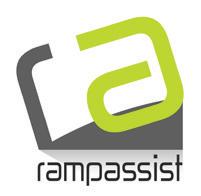

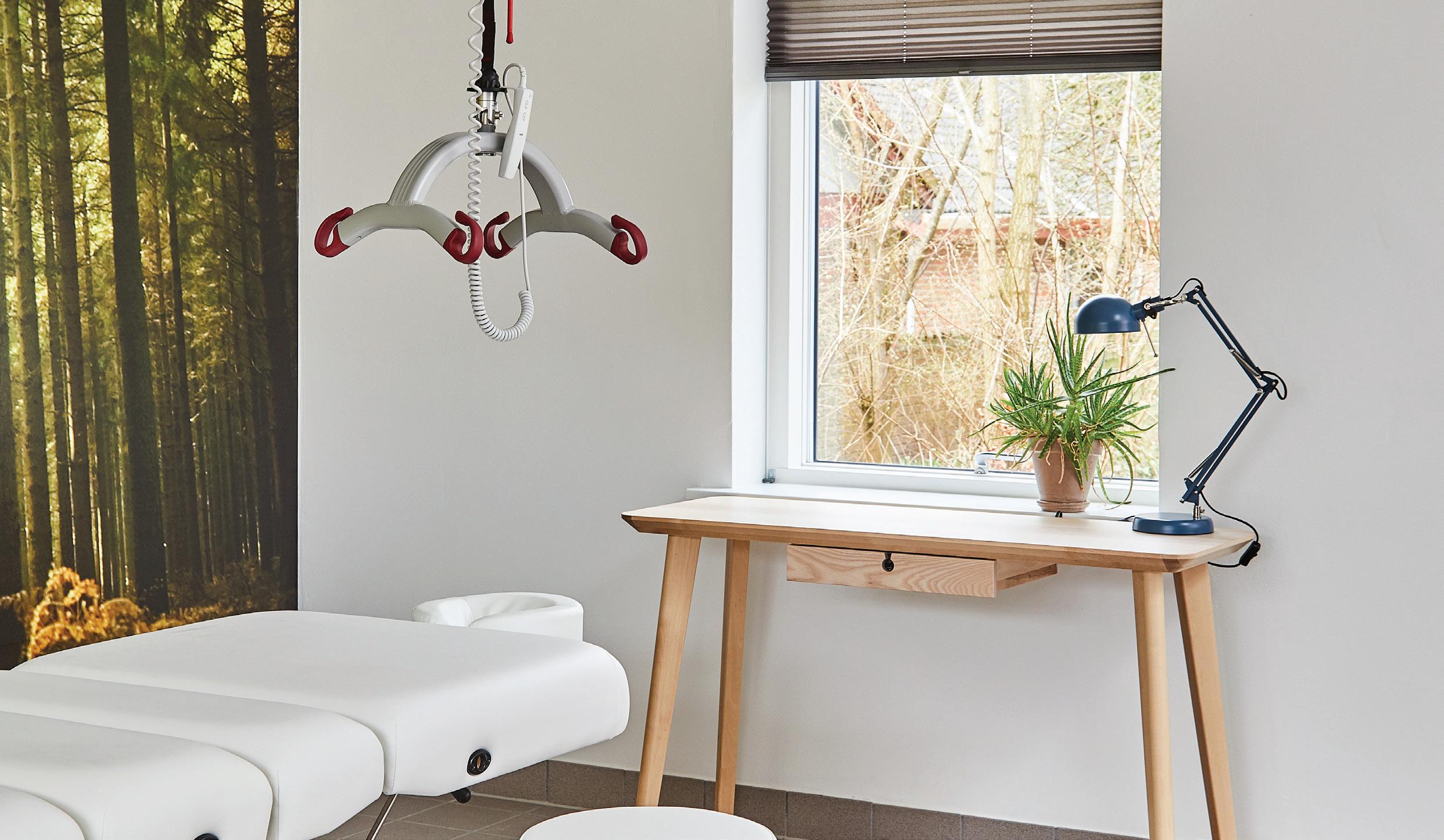
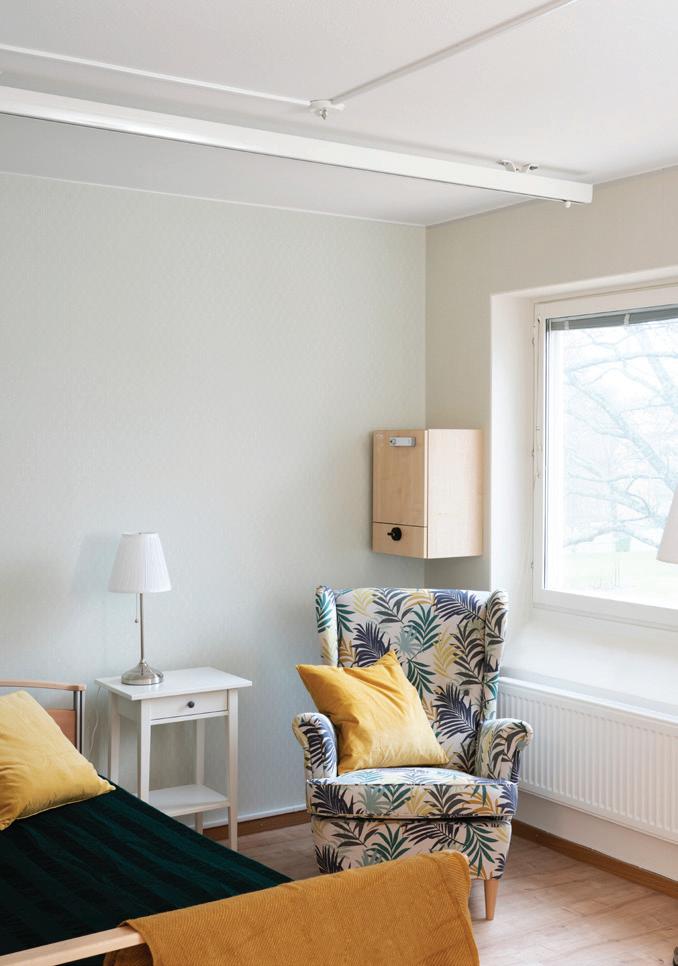
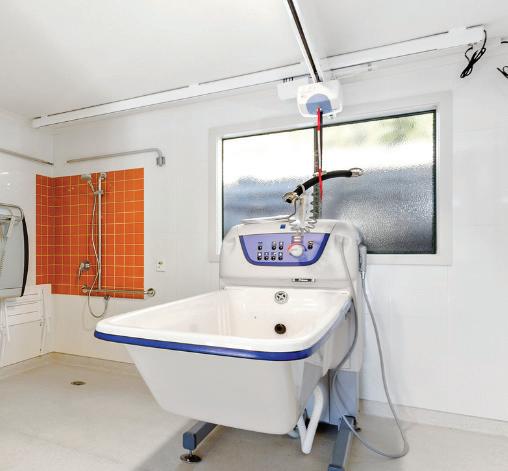
Hoists and transfer aid systems can be integral components of Specialist Disability Accommodation, designed to support individuals with significant physical impairments.
Hoists, (which are often ceiling-mounted), aim to provide a secure and comfortable means of transferring people from one point to another, such as from a bed to a wheelchair. This may help with daily activities, and aims to provide a dignified approach to mobility. Transferable systems can include a range of equipment, that may be tailored to meet the specific needs of the user.
The incorporation of this type of assisted technology in SDA reflects a commitment to accessibility and personal empowerment, aimed at giving a higher quality of life and the
possibility of more autonomous living. Consideration for the installation of these devices must be given to the design and integrity of an SDA build.
We supply a specialist range of equipment from Novis Healthcare, who are experts in the supply of assistive technology designed for commercial and home environments. Novis Healthcare will work alongside occupational therapists and support workers to ensure that a home is safe, secure and in line with the needs of a person with a disability.
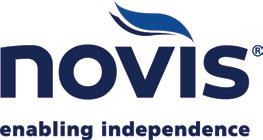
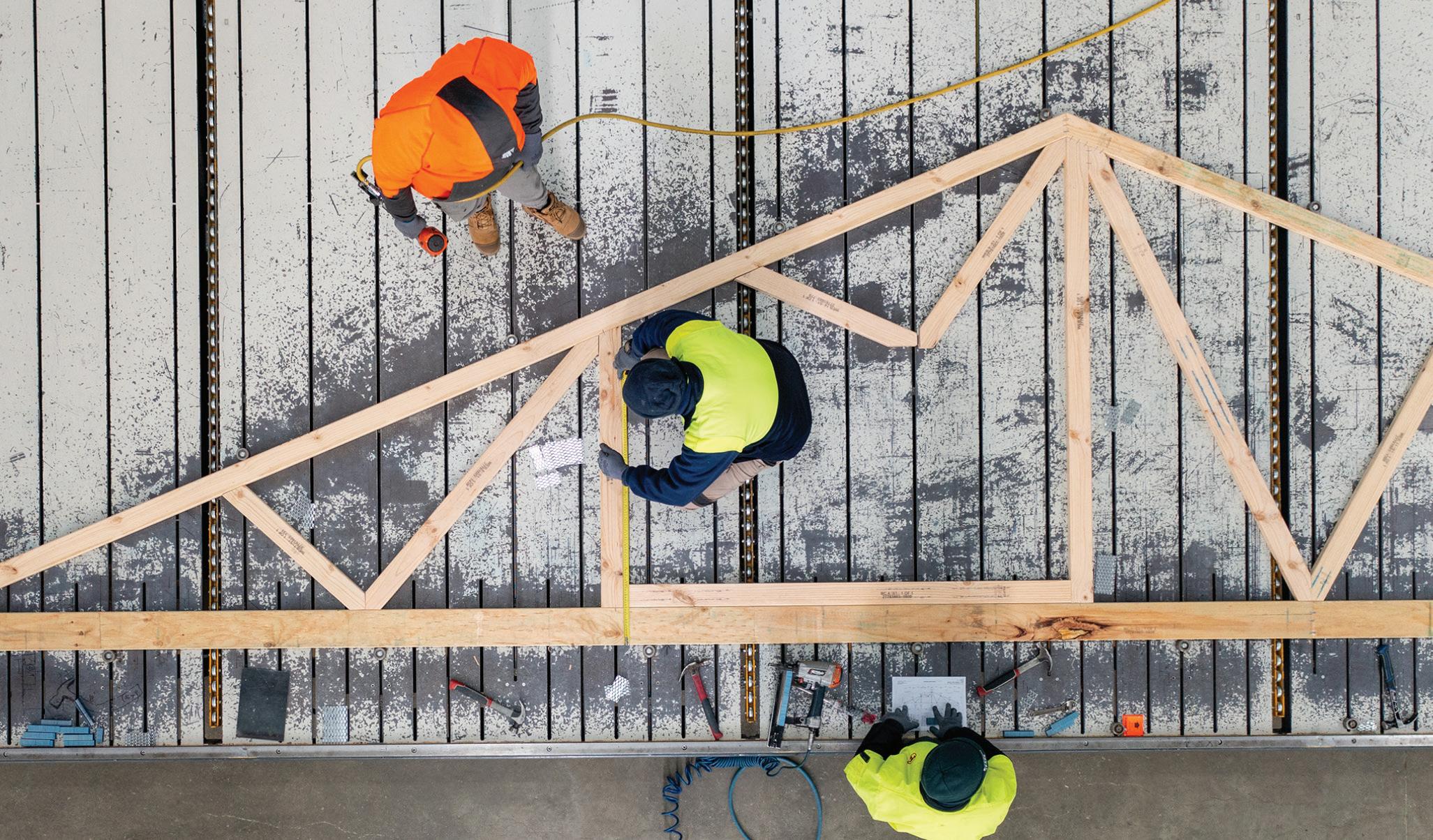
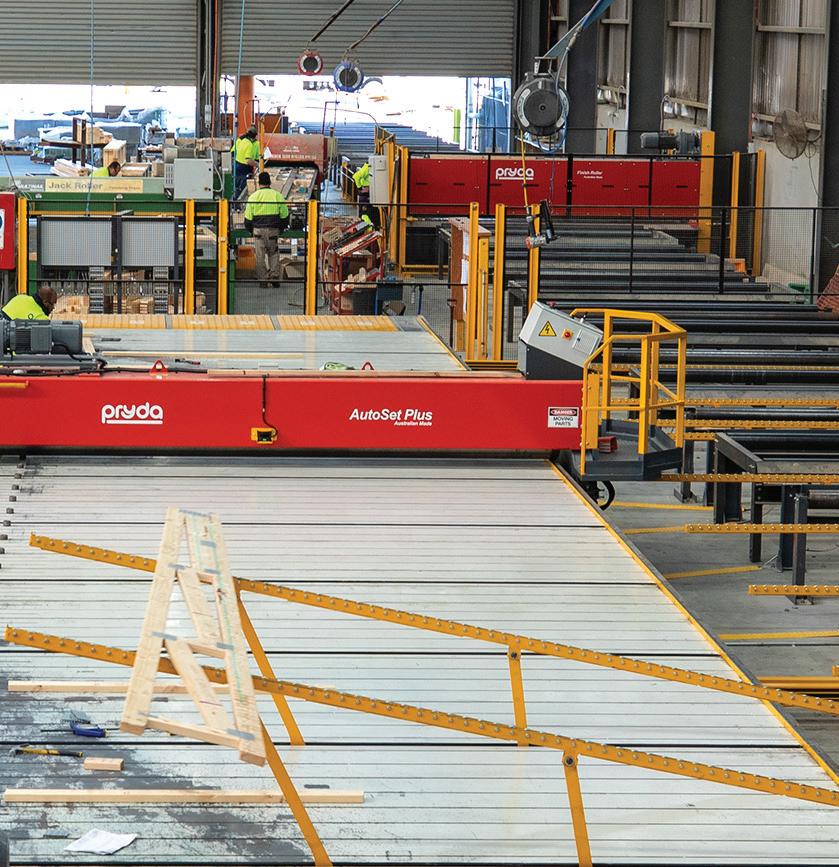
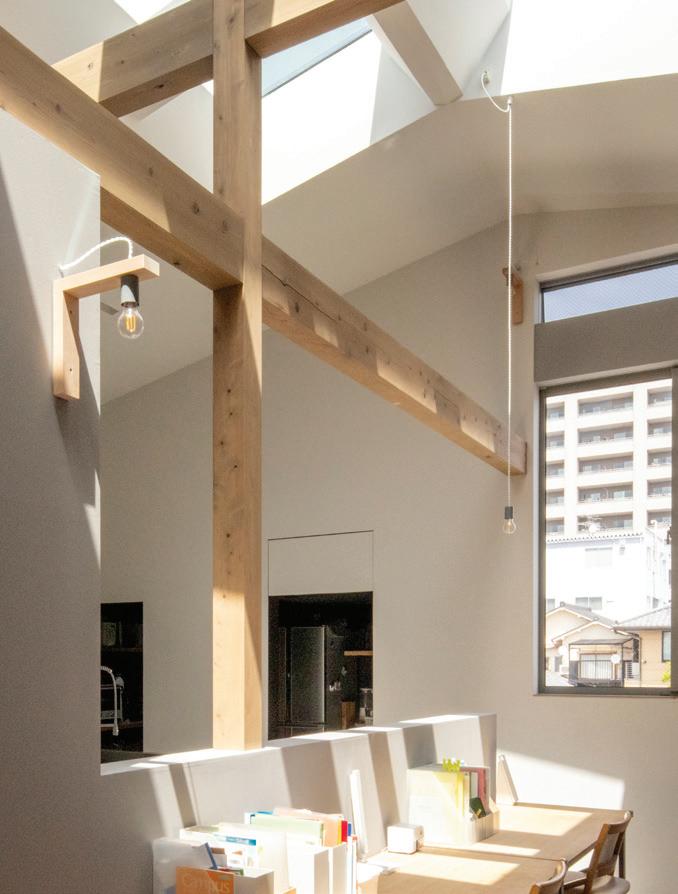
Given the requirement for possible installation of grab rails and assistive devices such as ceiling hoists, the structural integrity of an SDA build is imperative, starting with a strong frame.
Whatever you need for the Frame and Truss stage of your SDA build, Bunnings Trade has you covered. Our frames and trusses are suitable for both residential and commercial projects, and we manufacture, using Pryda Australia software, for a multitude of requirements.
We have a network of manufacturing plants located in both Hallam and Truganina in Victoria, as well as Wacol in QLD, and Warnervale, Minto and Unanderra in NSW, and there are also plans to extend Frame and Truss to many more locations across Australia.
The many benefits of prefabricated frame and trusses include:
• Consistency of quality
• Improved site safety
• Streamlined installation process
• Reduce labour costs
• Accelerate project completion
• Avoid unnecessary wastage on site

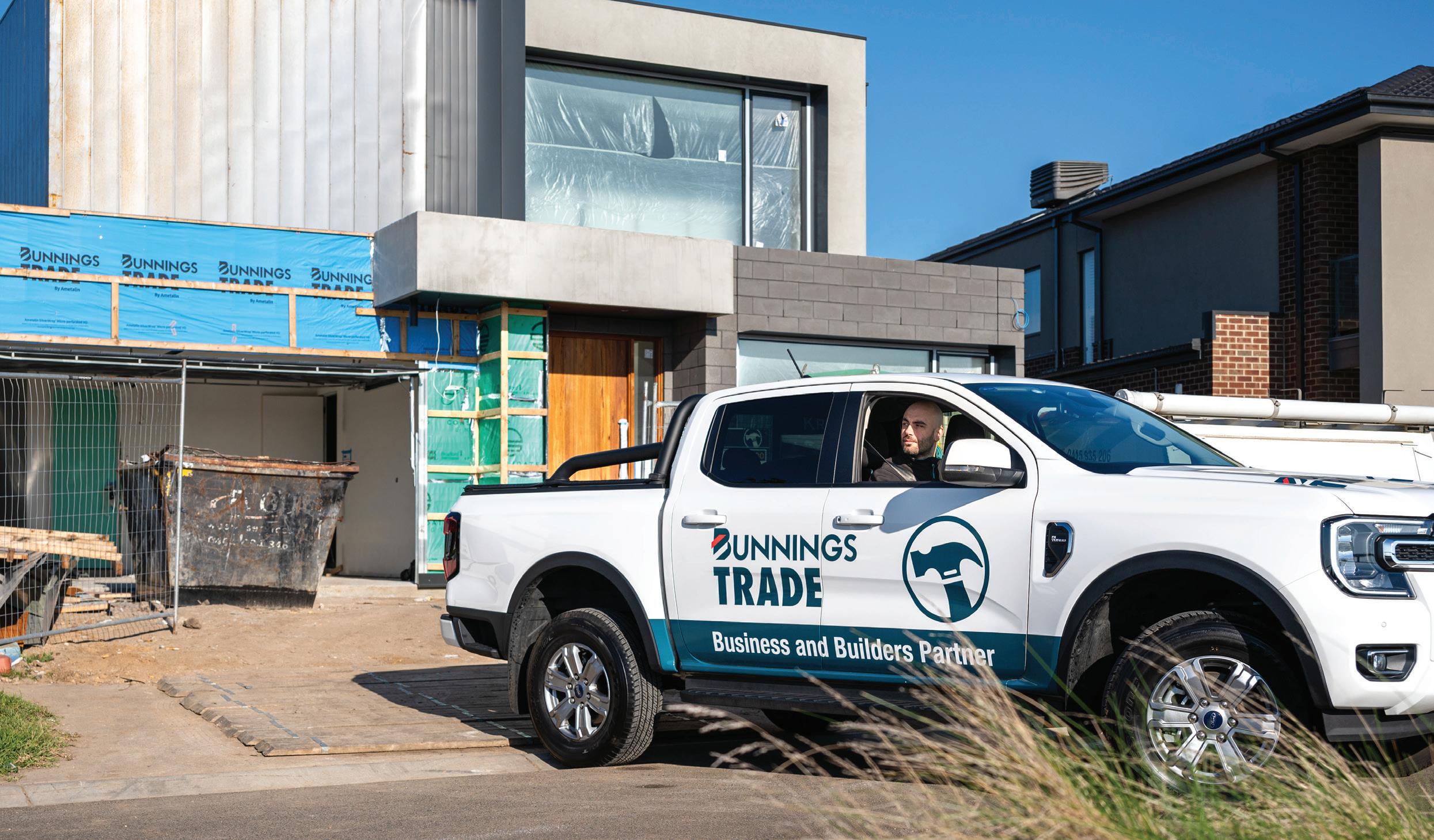
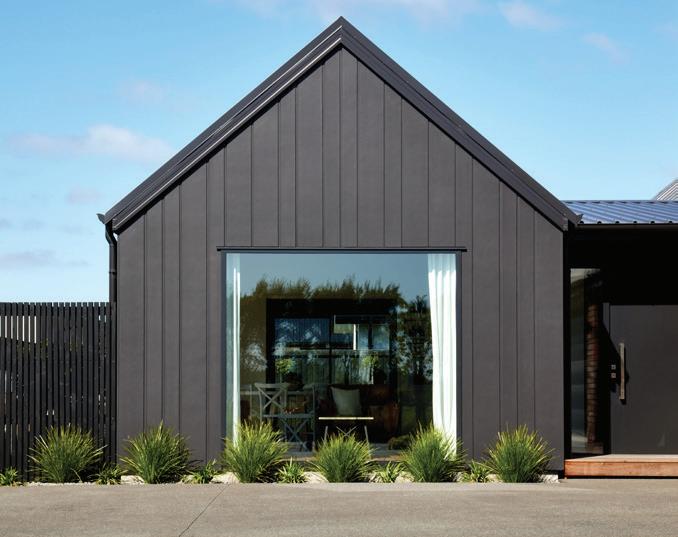
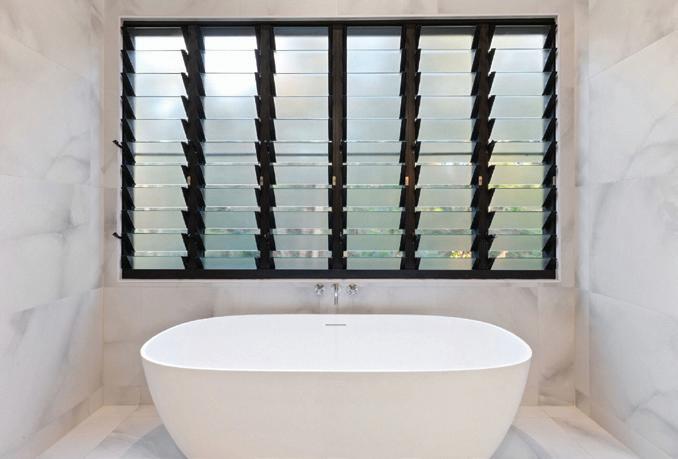
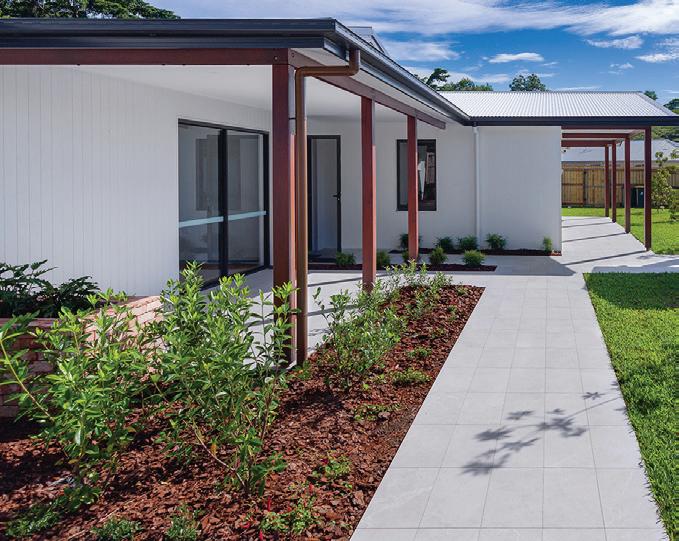
As always, the Bunnings Trade team is here to service your building needs from frame to fix, in addition to all the specialist products required for an SDA build.
We can provide end-to-end support including take-offs and estimates, guidance on materials, and access to new and innovative products and services. Where required, we can work with you to develop unique product solutions to fit your specifications, including high-end categories and specialist products.
Our National network of Trade Centres, Frame and Truss plants, Warehouses and Building Solutions Studios, allows us to source and manage large or small volume buying, and help you to get the job done faster.
Across all building stages we’ve got you covered for your Specialist Disability Accommodation projects:
• Foundations and Footings
• Windows
• External Cladding
• Roofing
• Insulation
• Heating, Cooling and Ventilation
• Hot Water solutions
• Outdoor Timber
• Fencing
• Fasteners and Fixings
